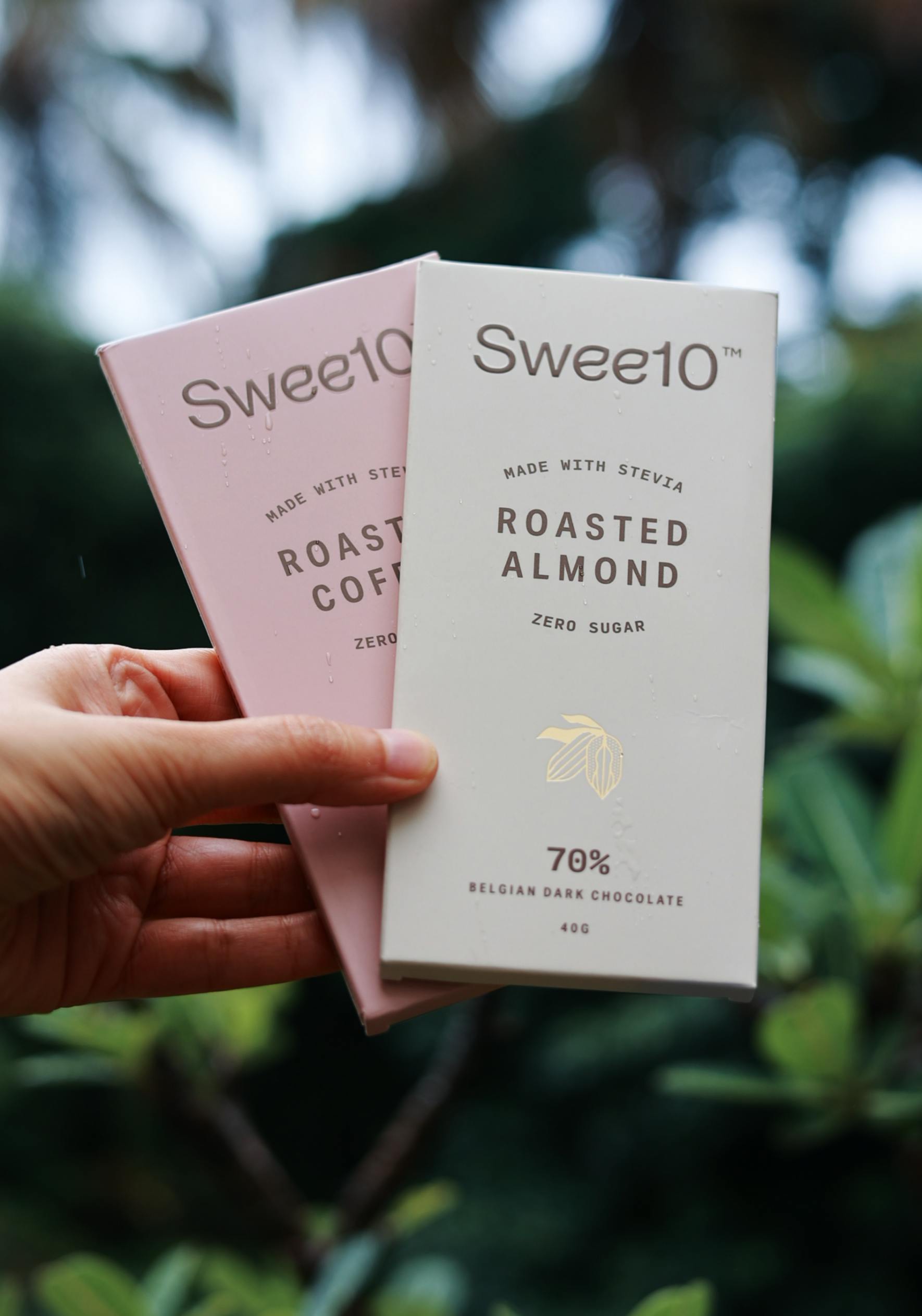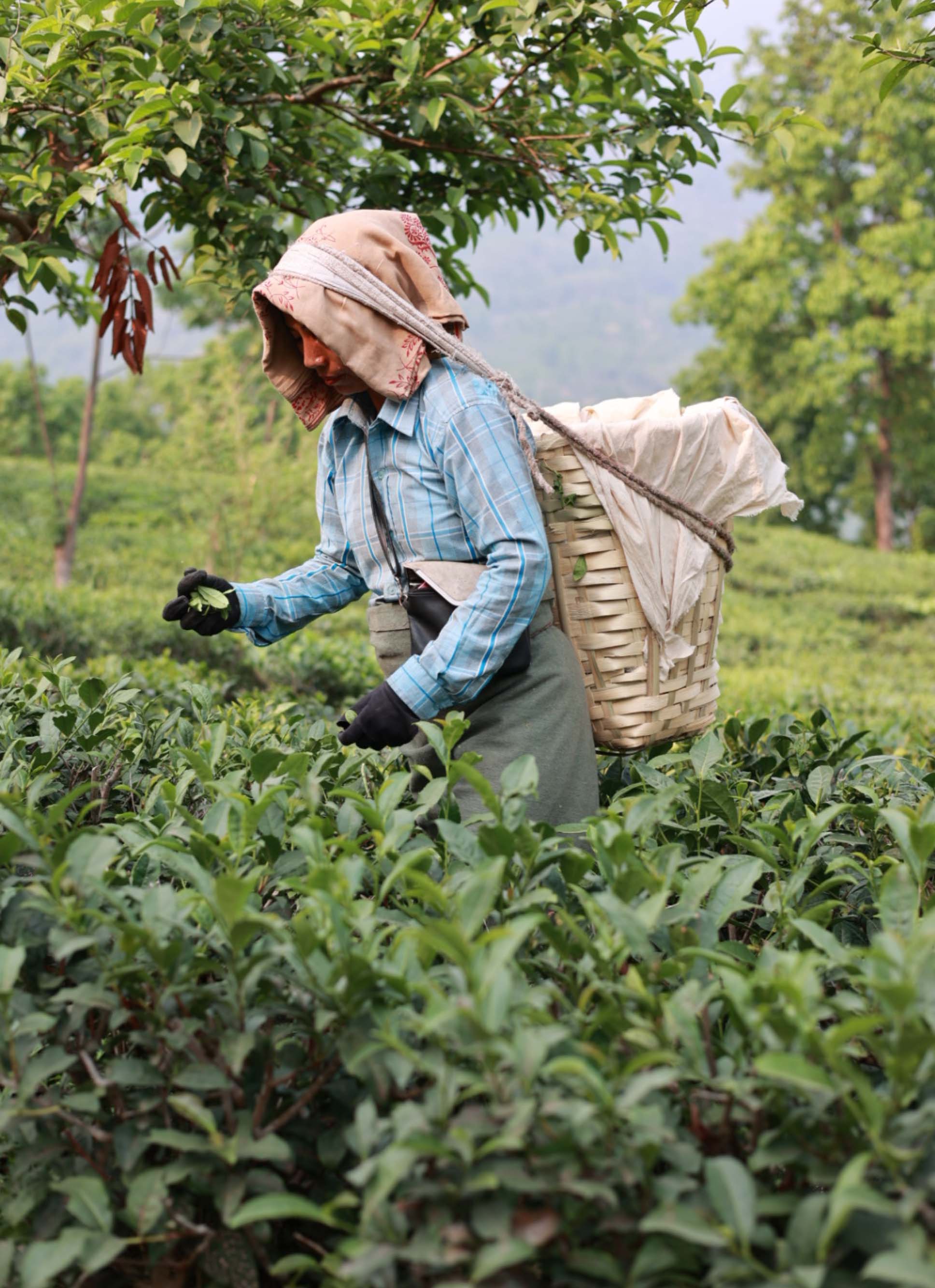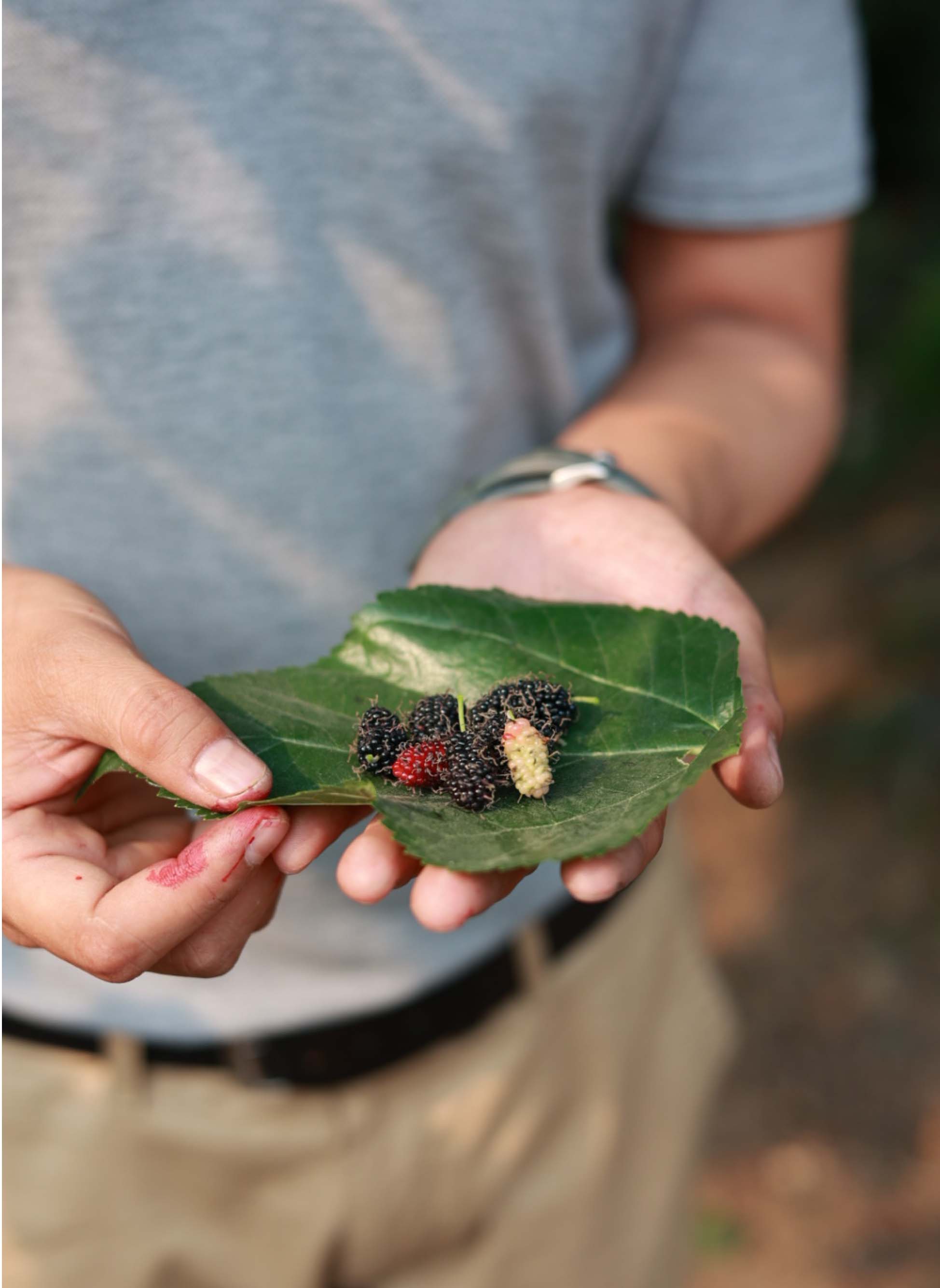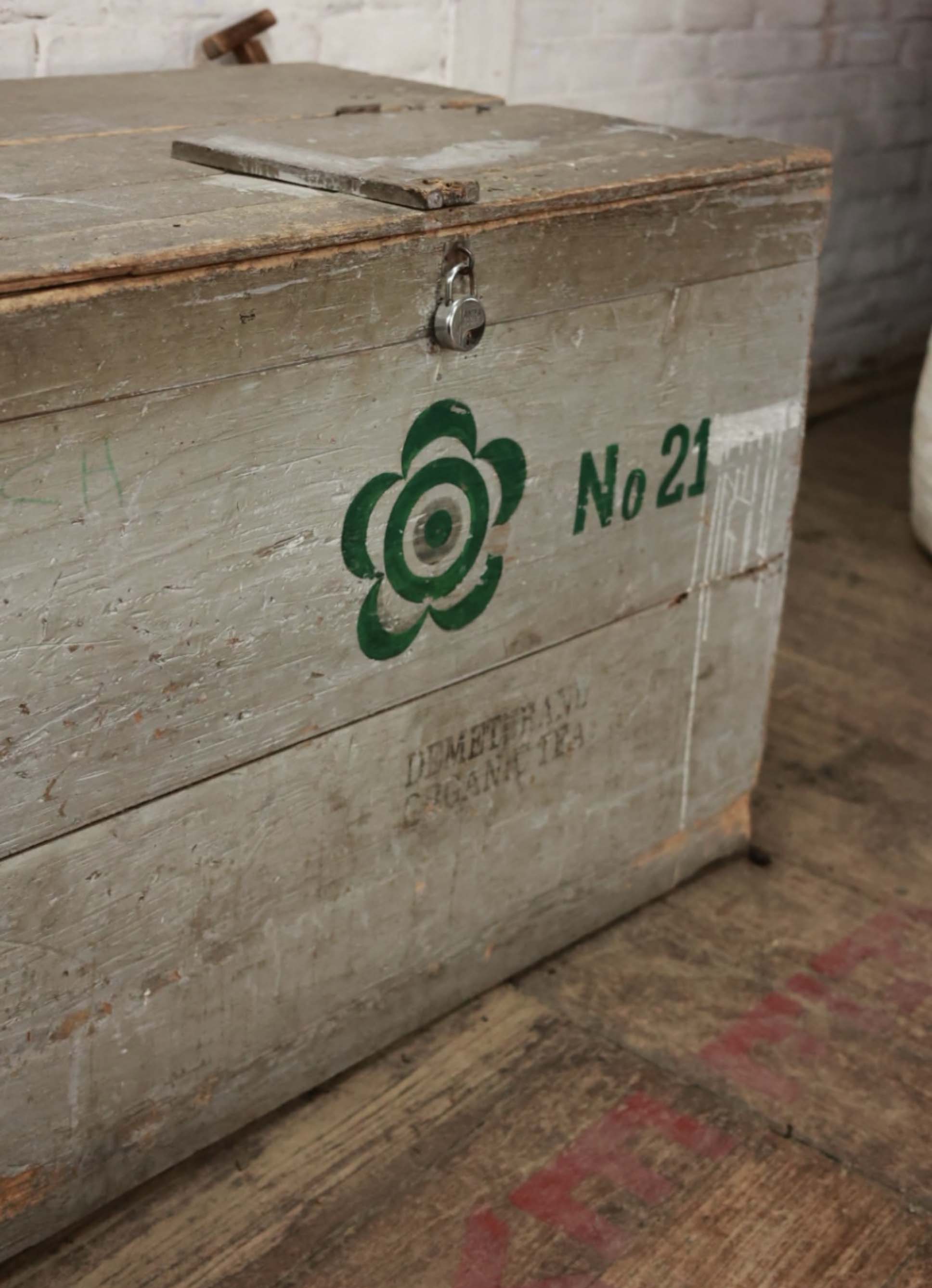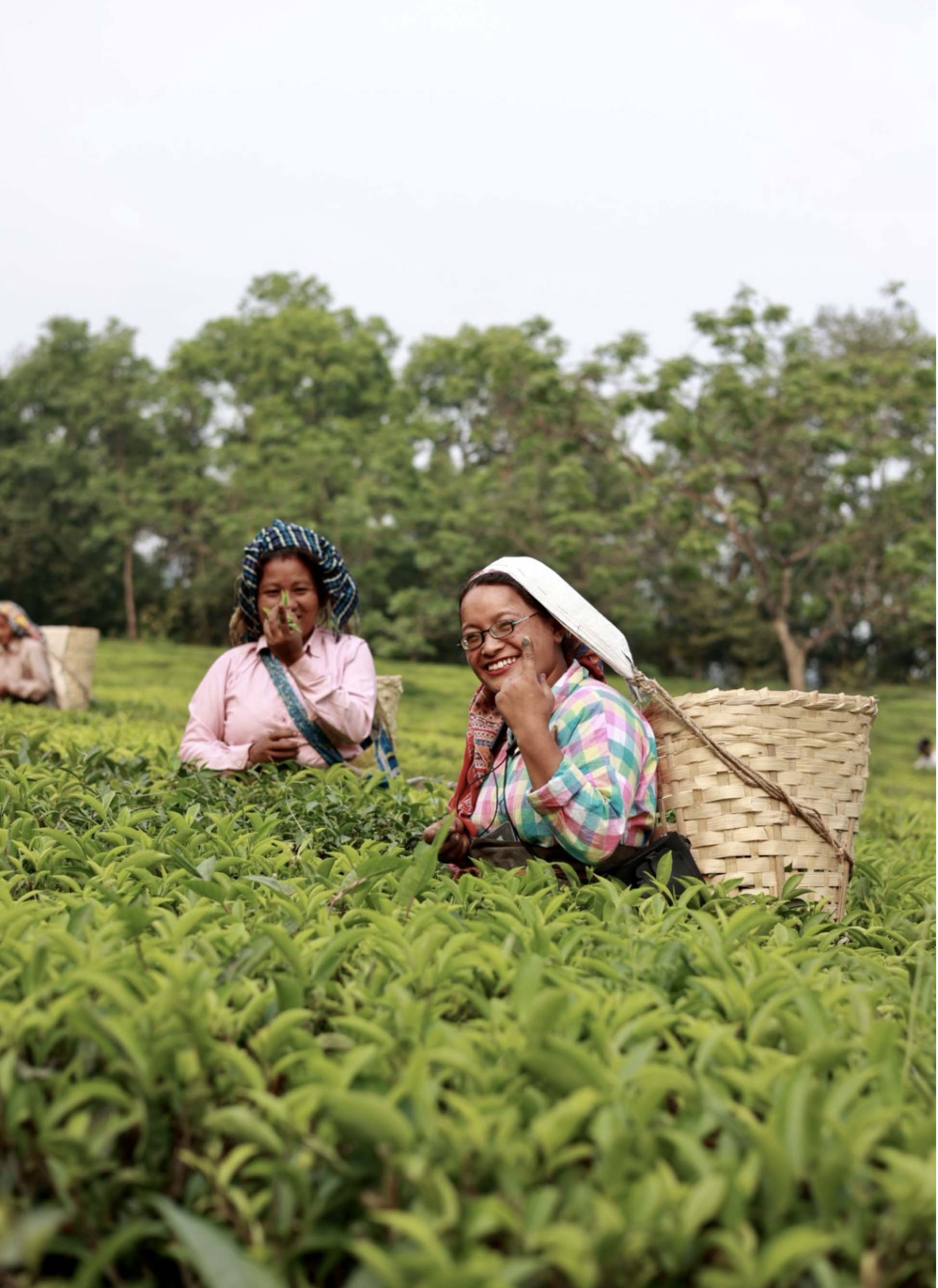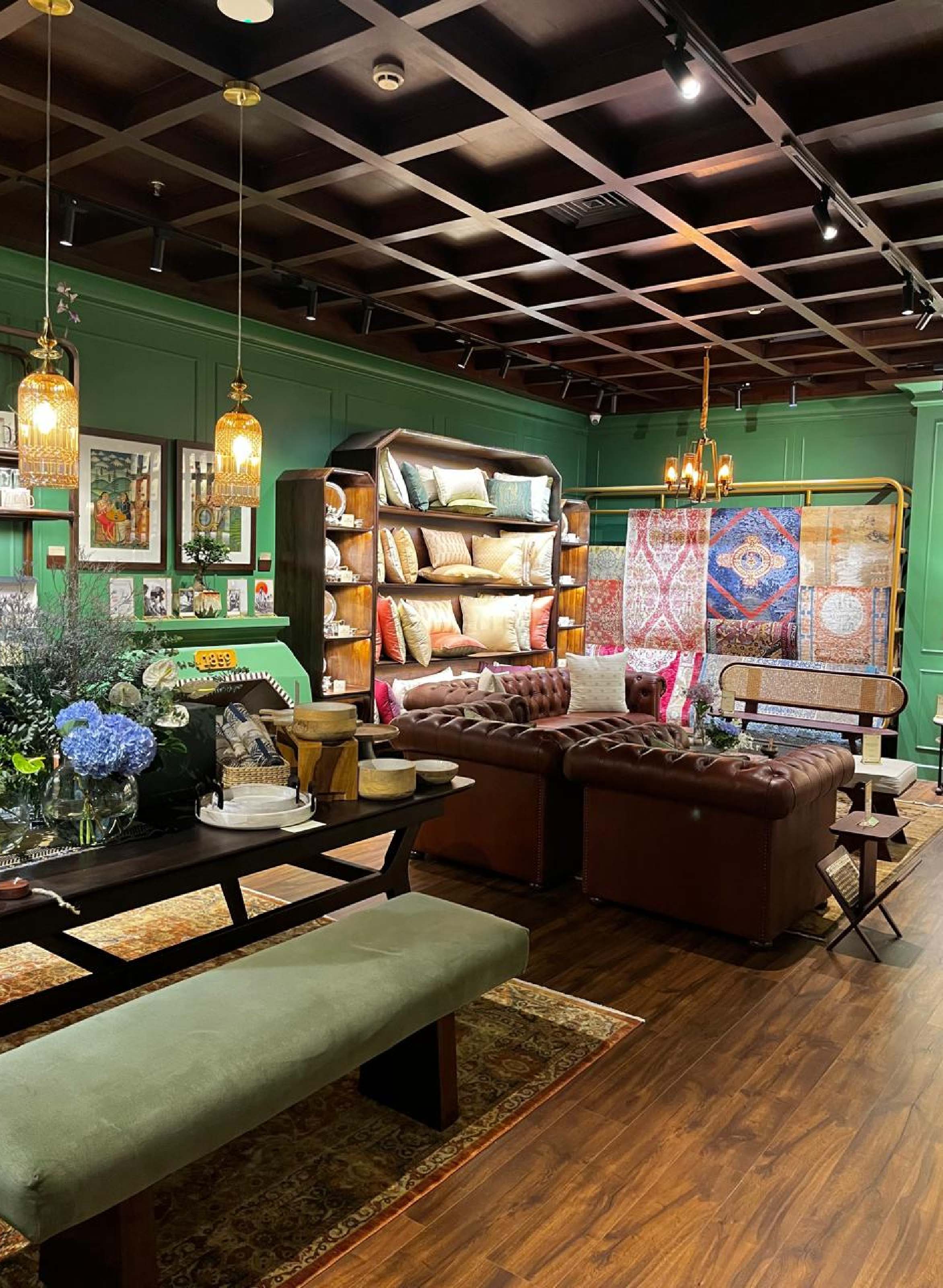
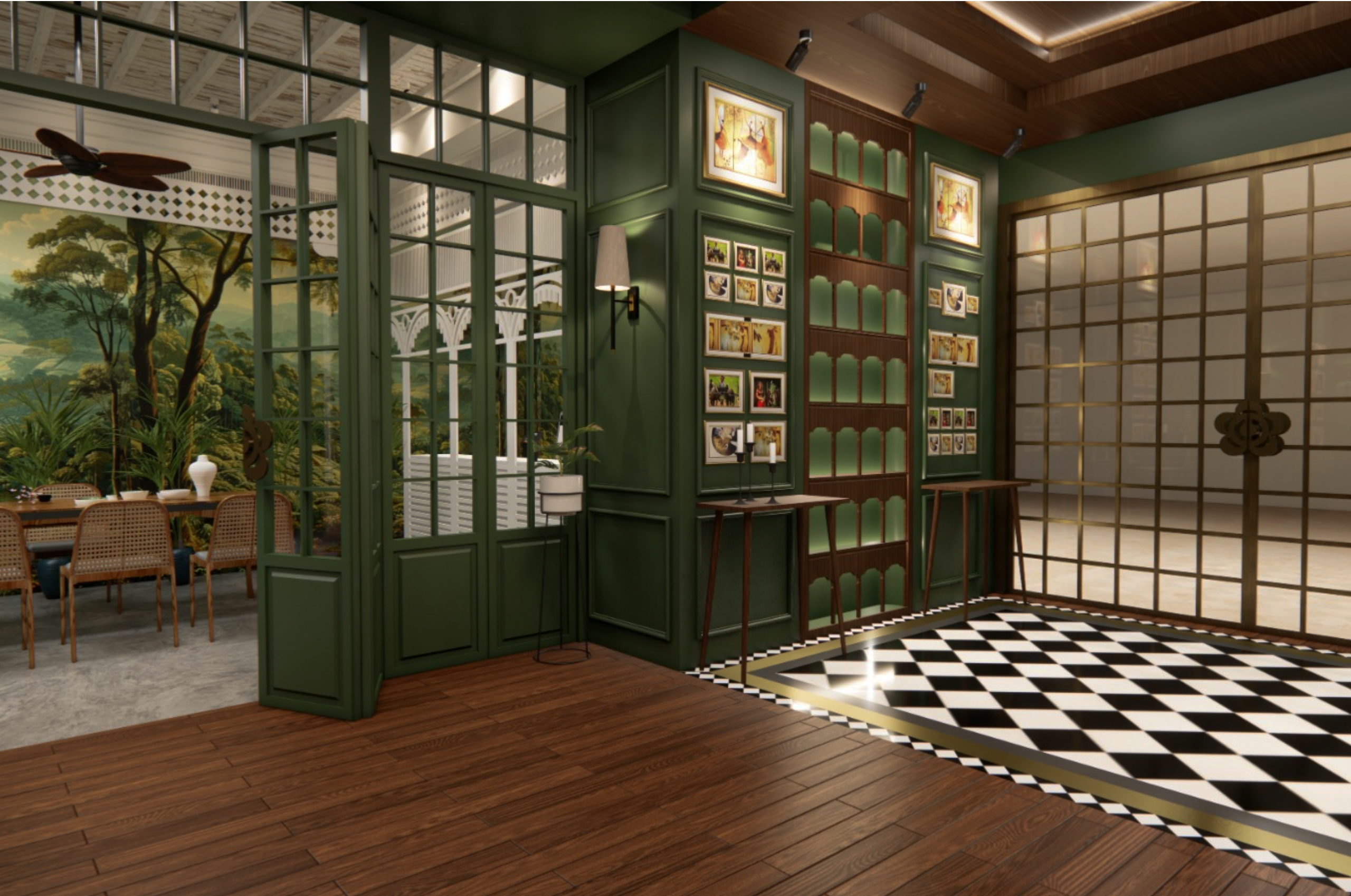
The Makaibari Bungalow
Calcutta has a lingering nostalgia for a way of silver-spoon living that only comes with centuries of patronage for finer things. The diaphanous cotton grown along the Ganges was transformed into jamdani, while Muslim silversmiths crafted intricate gardens into teacups. Further downstream, Mughal-era carpet weavers knotted 300 times within a measly inch. This city has been a hub for the finest crafts, from exquisite weavings and Kalighat art to intricate silverware, all once patronised by the nawabs. As the port closest to the tea-growing regions of Assam and Bengal, it was the capital of tea in India, with every family having a connection to the plantations, as tasters, auctioneers, growers, packagers, shippers etc.
The Makaibari Bungalow displays Luxmi’s natural affinity for such finer things of the past. It shares the produce of these few last bastions of fine handiwork because beauty must be shared.
This space is also a house that, for the first time, brings together all of Luxmi’s brands - Luxmi Tea (including Makaibari tea), Manor and Mews Furniture (which will be integrated with Obeetee) and Obeetee Carpets (and furnishings). And what makes it a home? A mishmash of beautiful things, curious things, and fine everyday objects, collected with shauk, together on a mantle.
This Burra Babu naturally appreciates a languid afternoon on a planter's chair. Wrapped in a featherweight dhoti, sitting in the verandah of his bungalow with a plush carpet underfoot. The afternoon leads to multiple cups of afternoon tea while thumbing through worn pages of 20th-century authors. Here is a Bengali with his inheritance - An understanding of beauty, pleasure, and finesse. It's this that finds its way into everyday objects at his home.
This is both a serene setting to appreciate the nuances of fine tea and a space reminiscent of tea sessions and adda - spaces to inspire friendly discourse.
The Bungalow offers a cosy experience with the sense of familiarity and comfort experienced in a Bungalow on the hills. The store is primarily divided into the entrance, the living room, the kitchen, and the verandah. The living room features a seating area with furnishing and carpets, around a fireplace with a mantle with estate paraphernalia.
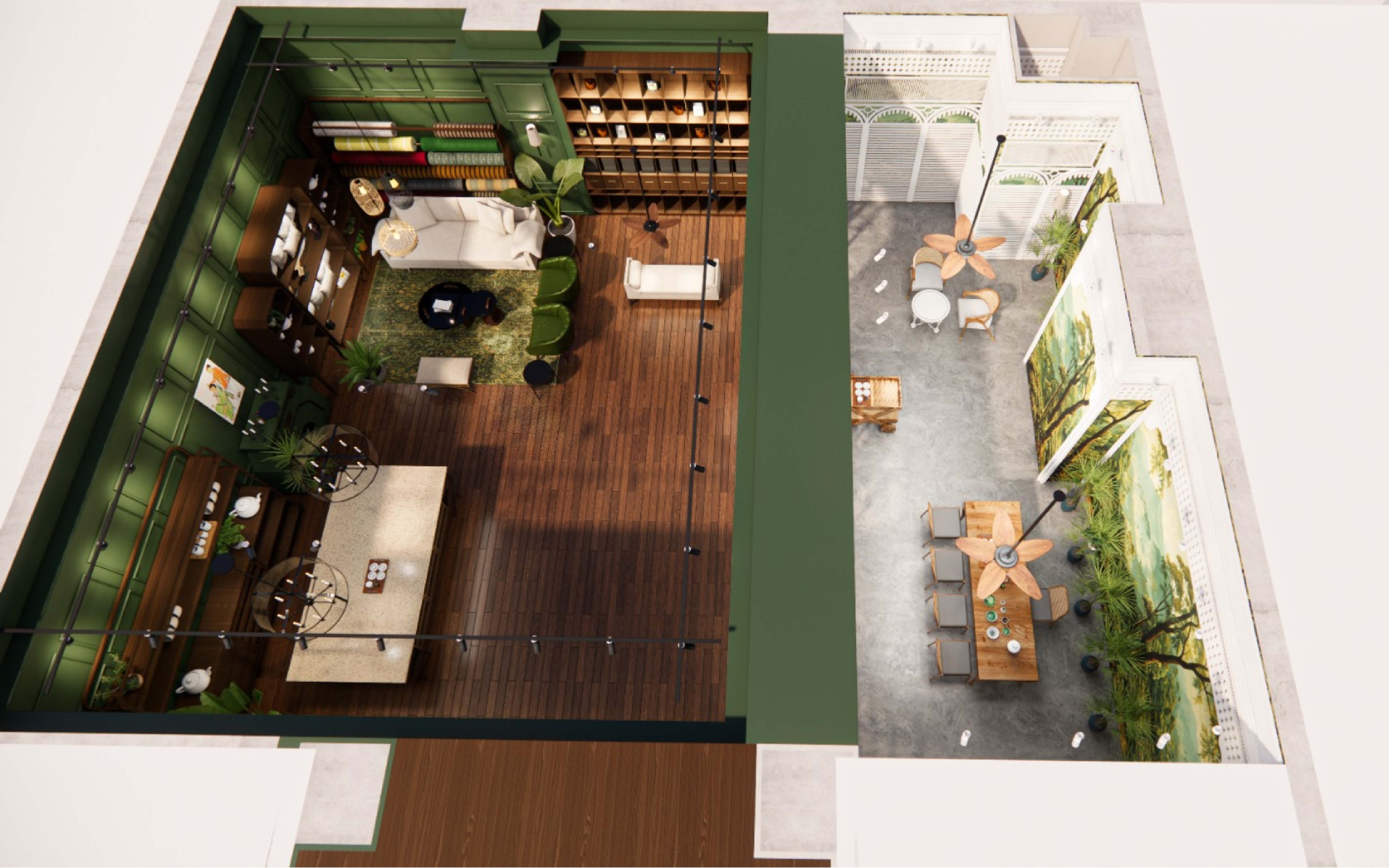
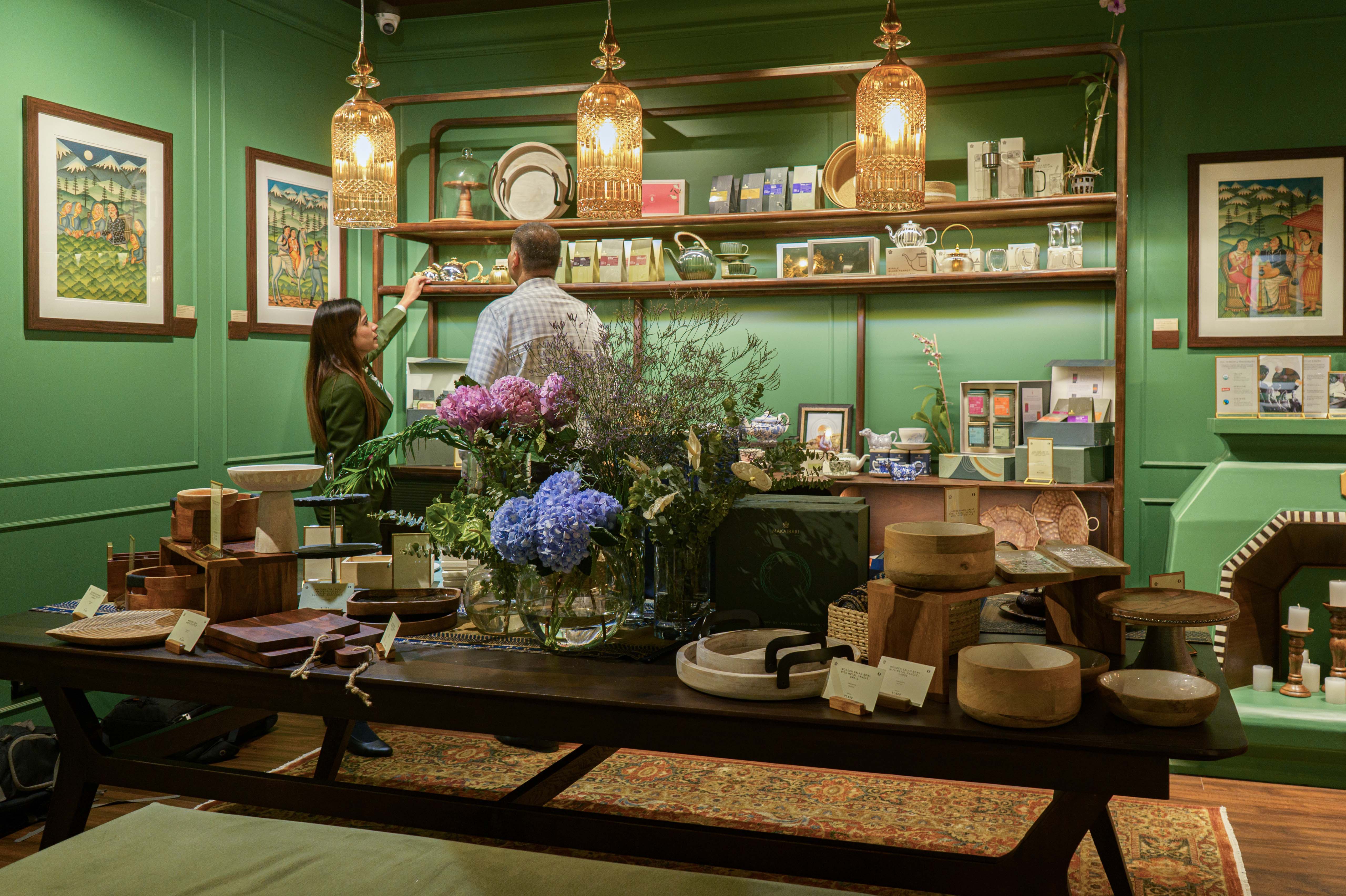
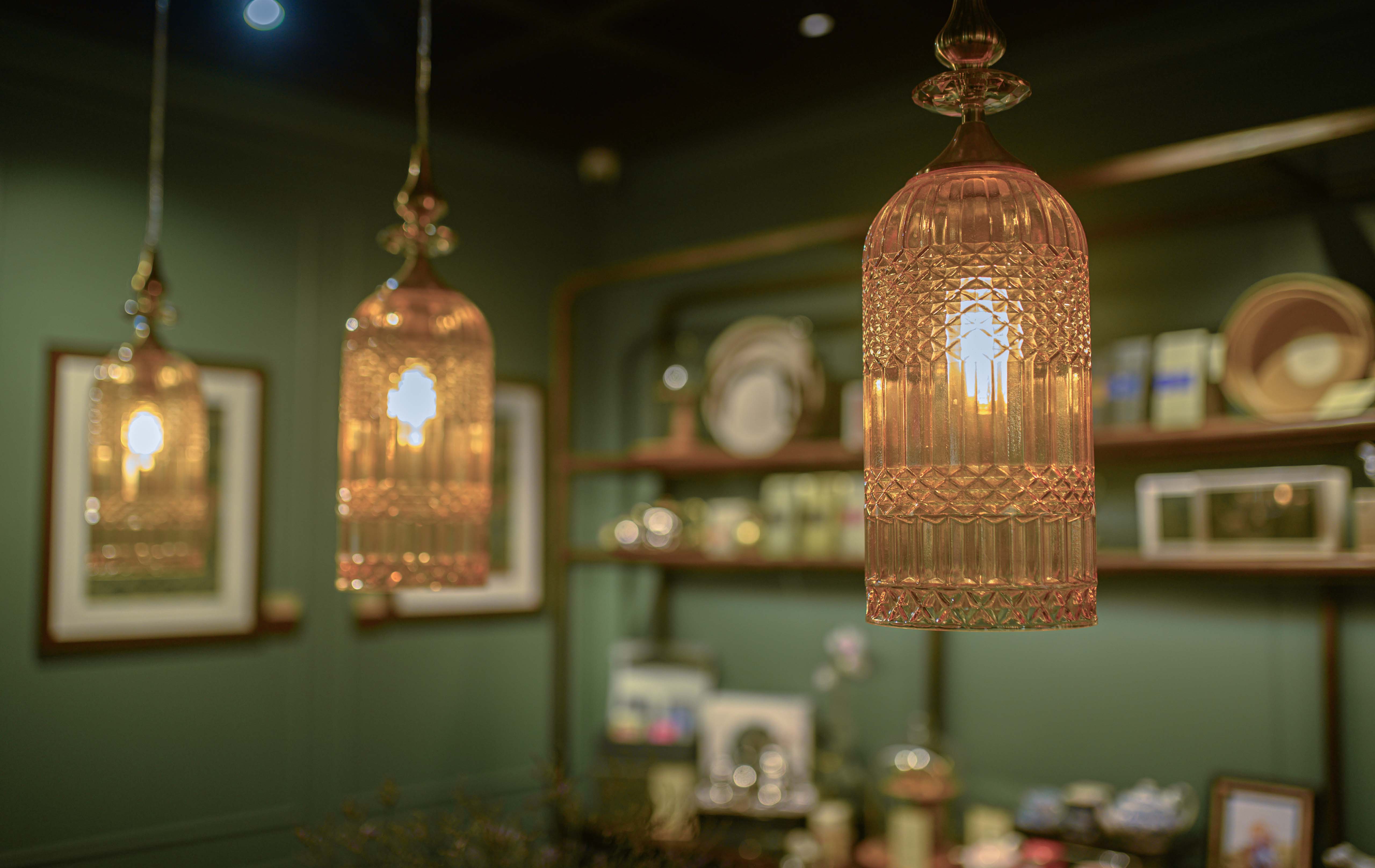
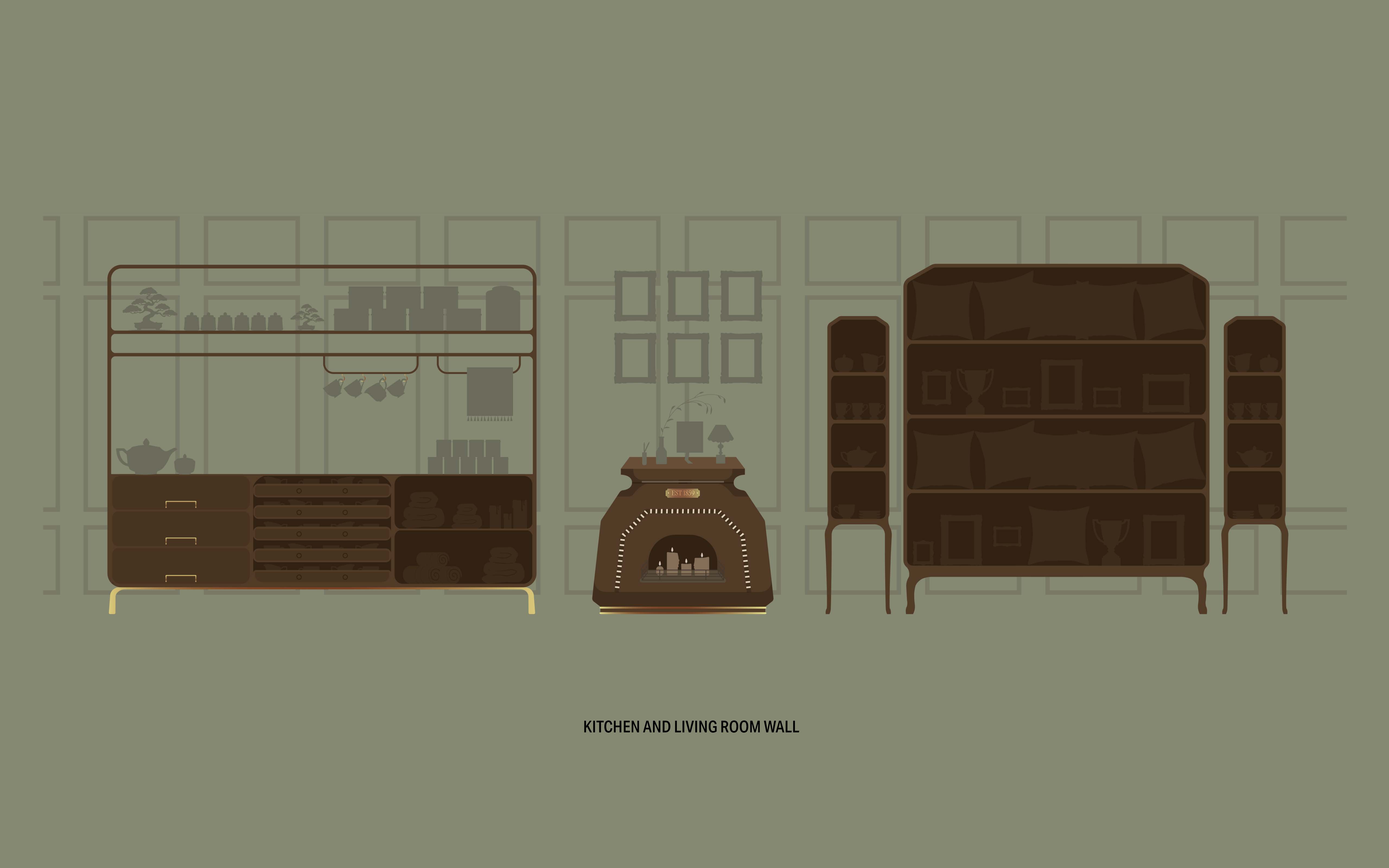
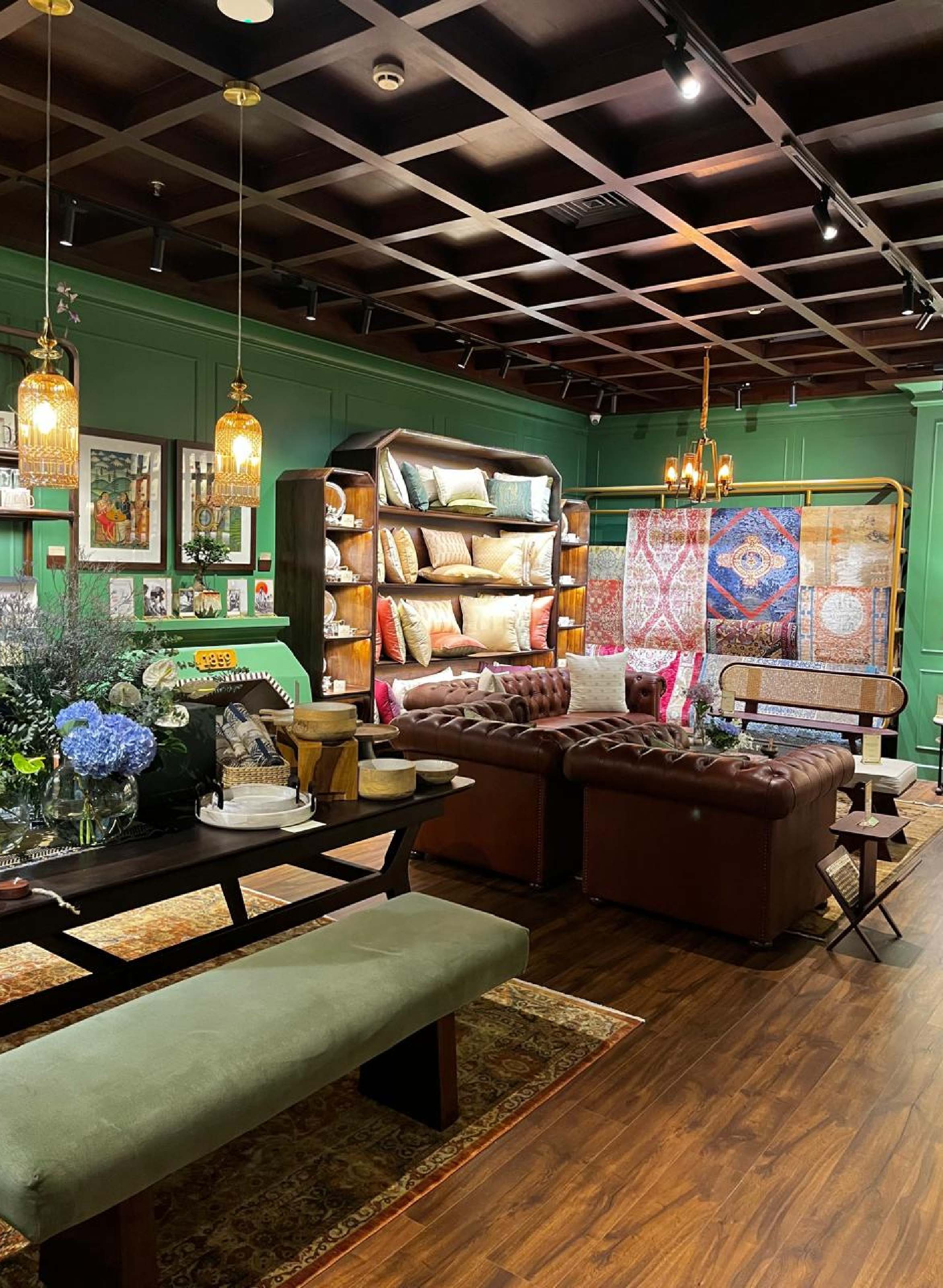
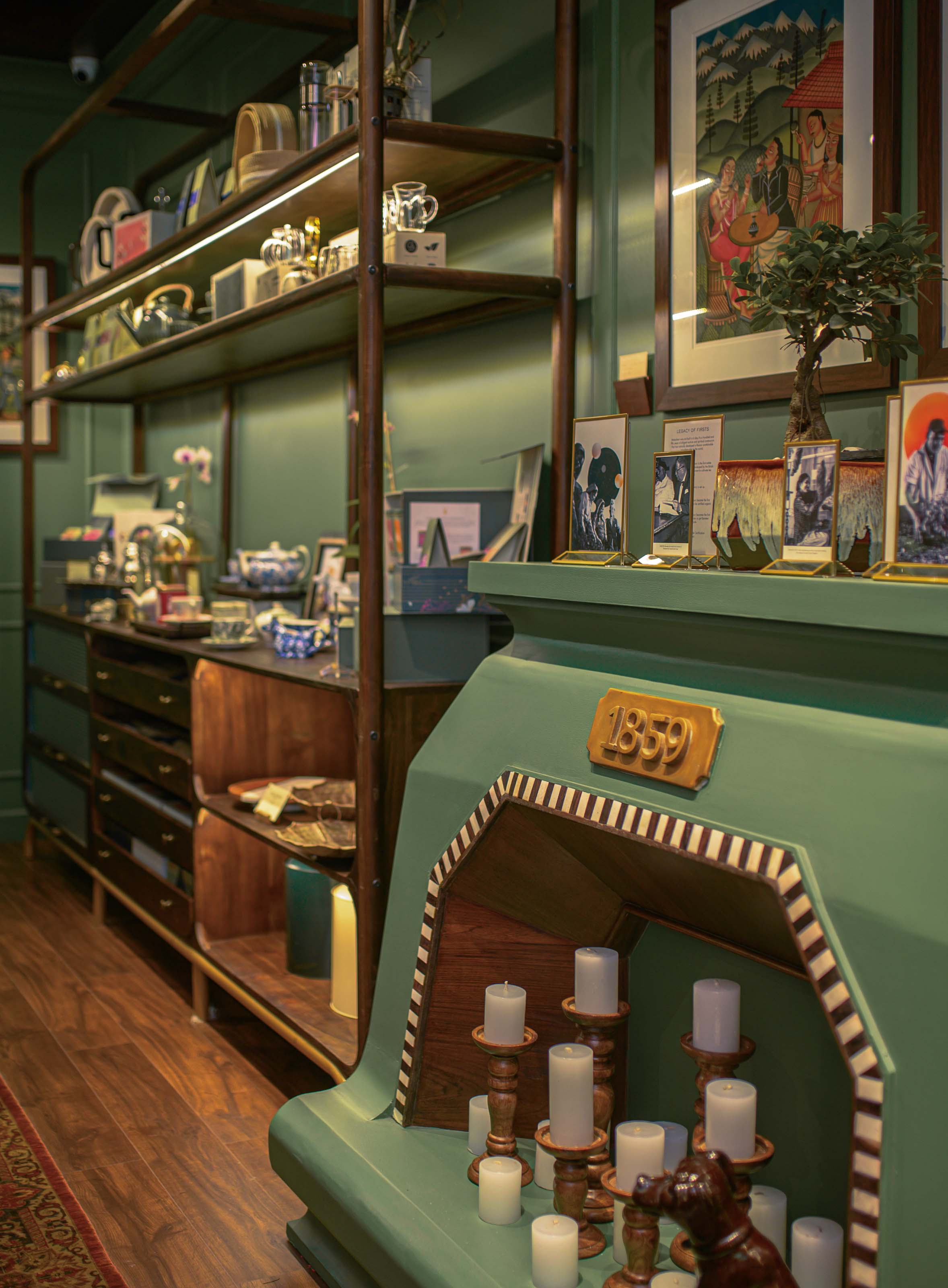
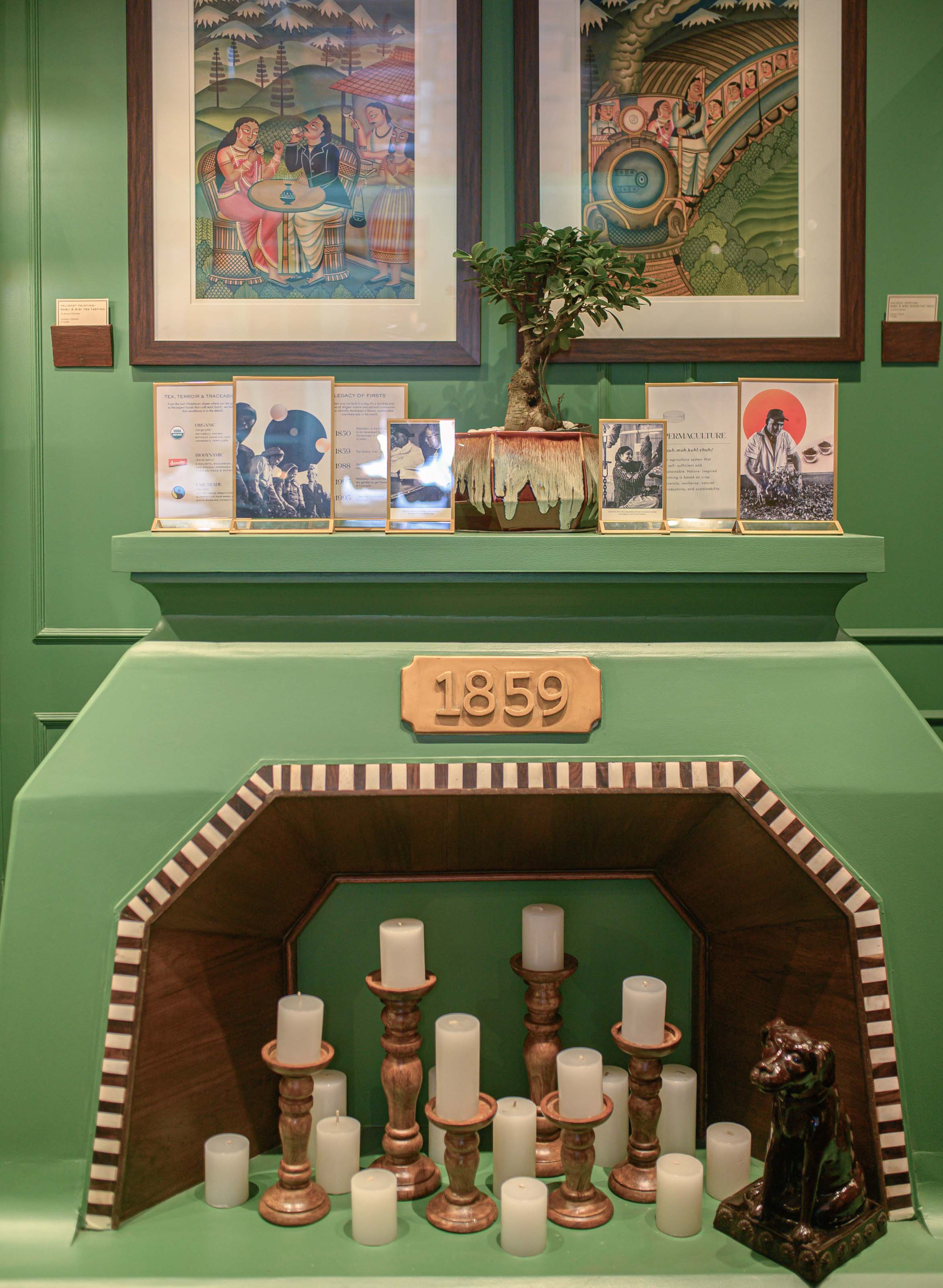
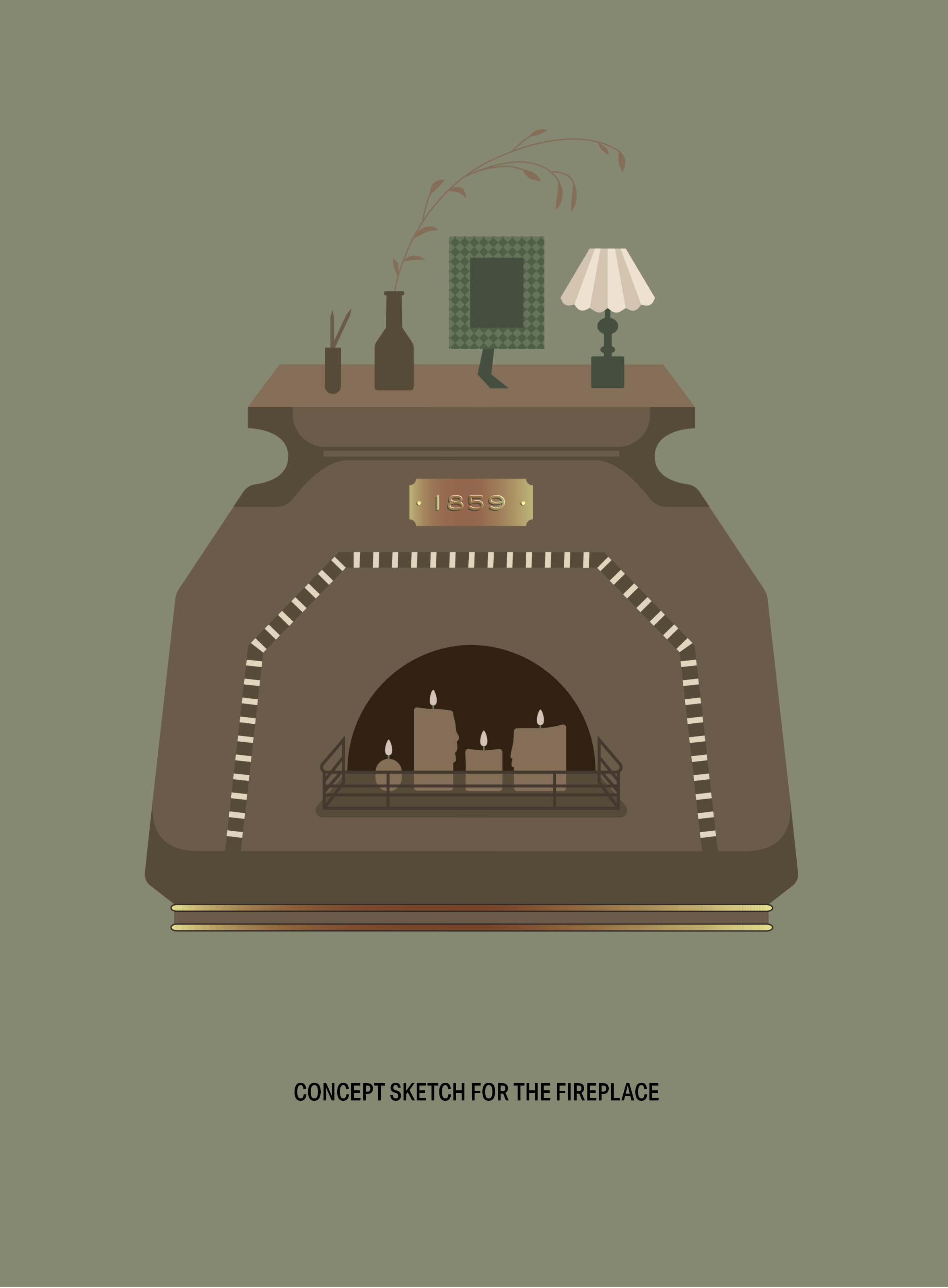
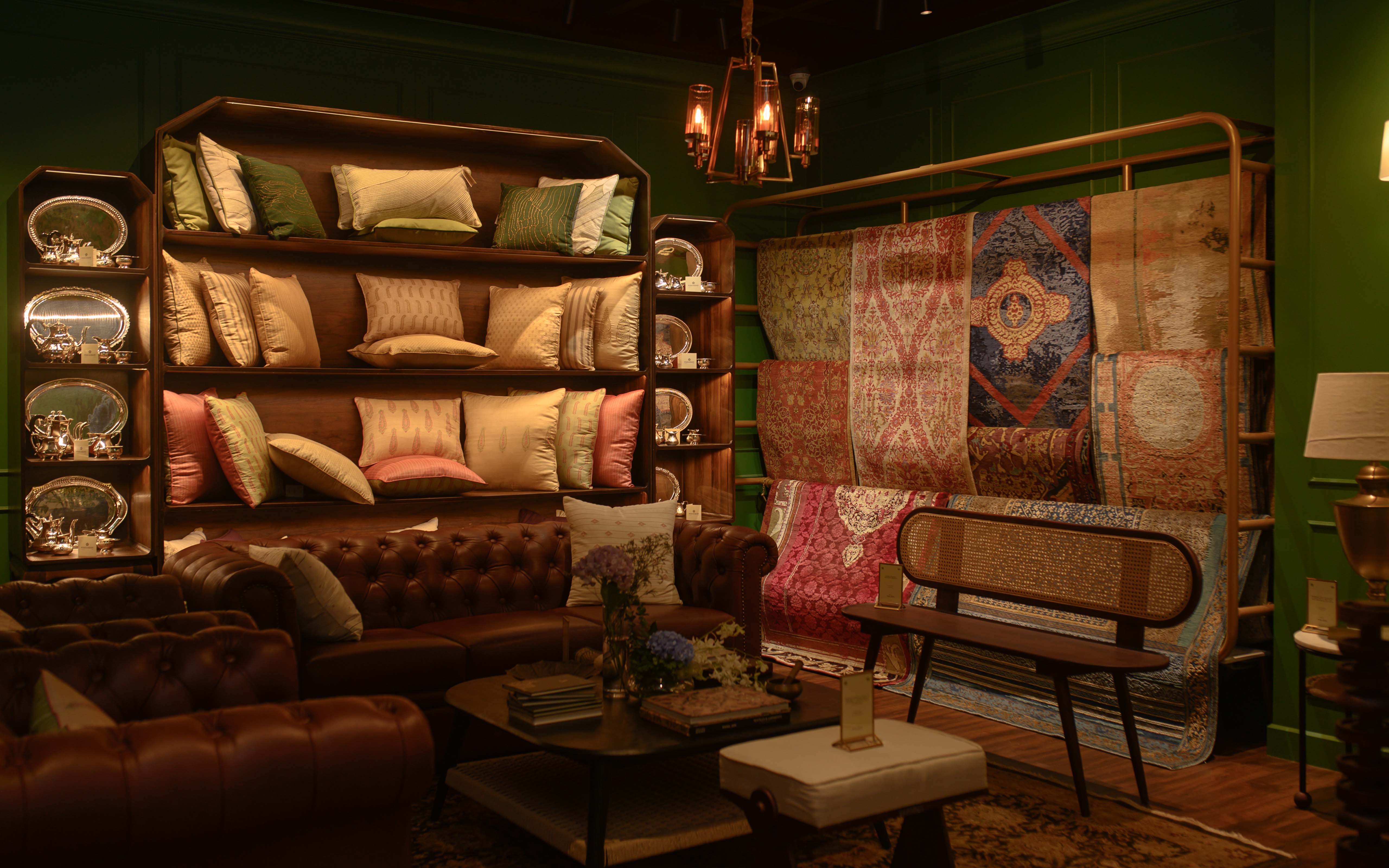
A centrally located tea library showcases the various teas and their intricate characteristics. The tea library features Makaibari tea from different regions within the estate, plucked at different seasons (harvests), and processed in different ways to bring out its delicate flavours. Each column features one kind of tea, with 9 kinds of tea.
Each harvest captures the essence of its season, like the fruity notes of the second flush, plucked in summer, or the lighter, delicate taste of the first flush, made from tender leaves plucked in spring after the long winter rest. To bring this sensory experience into the store, tea chests have been included in clever little drawers in the library to reveal the distinctive aroma of each season’s harvest.
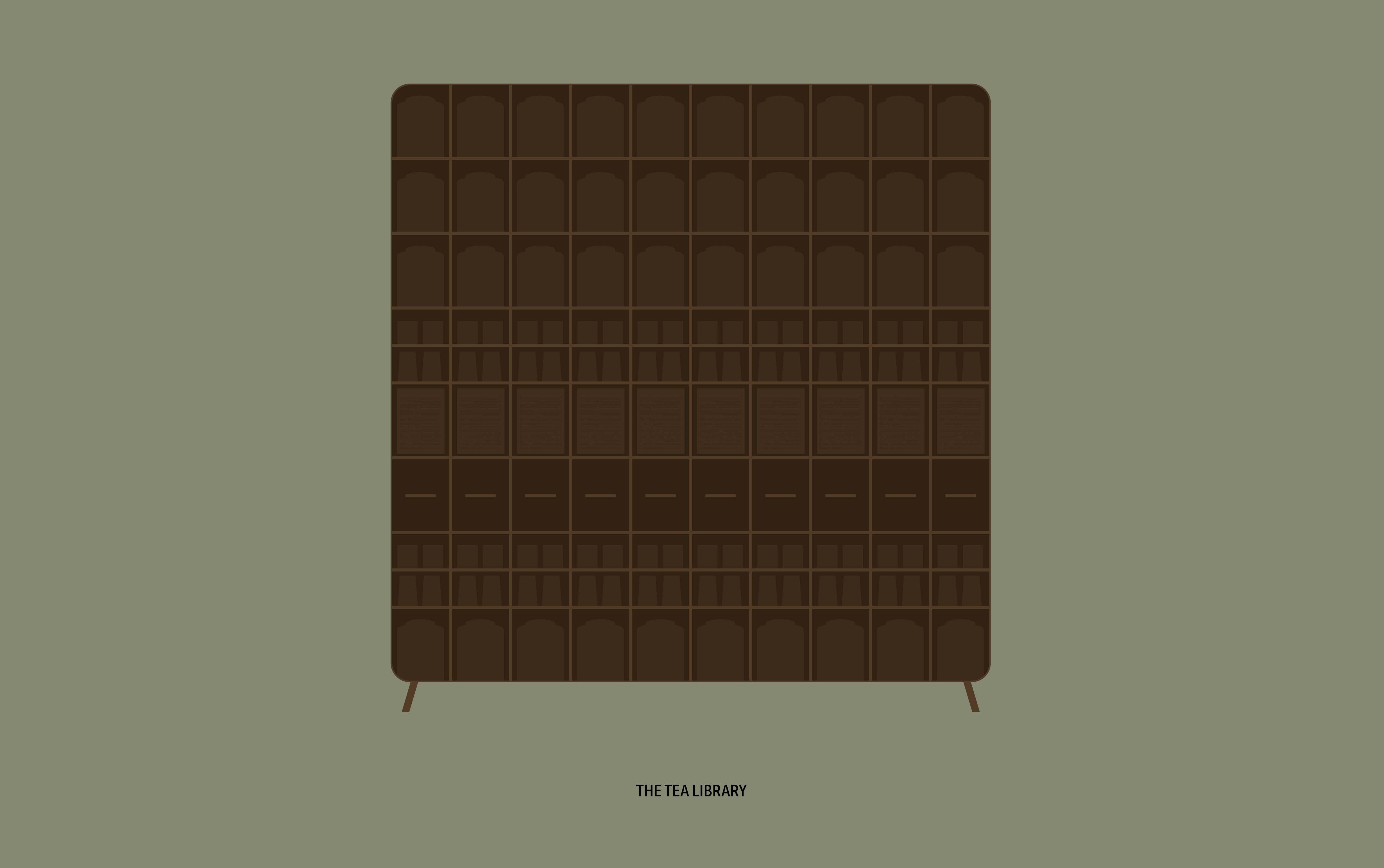
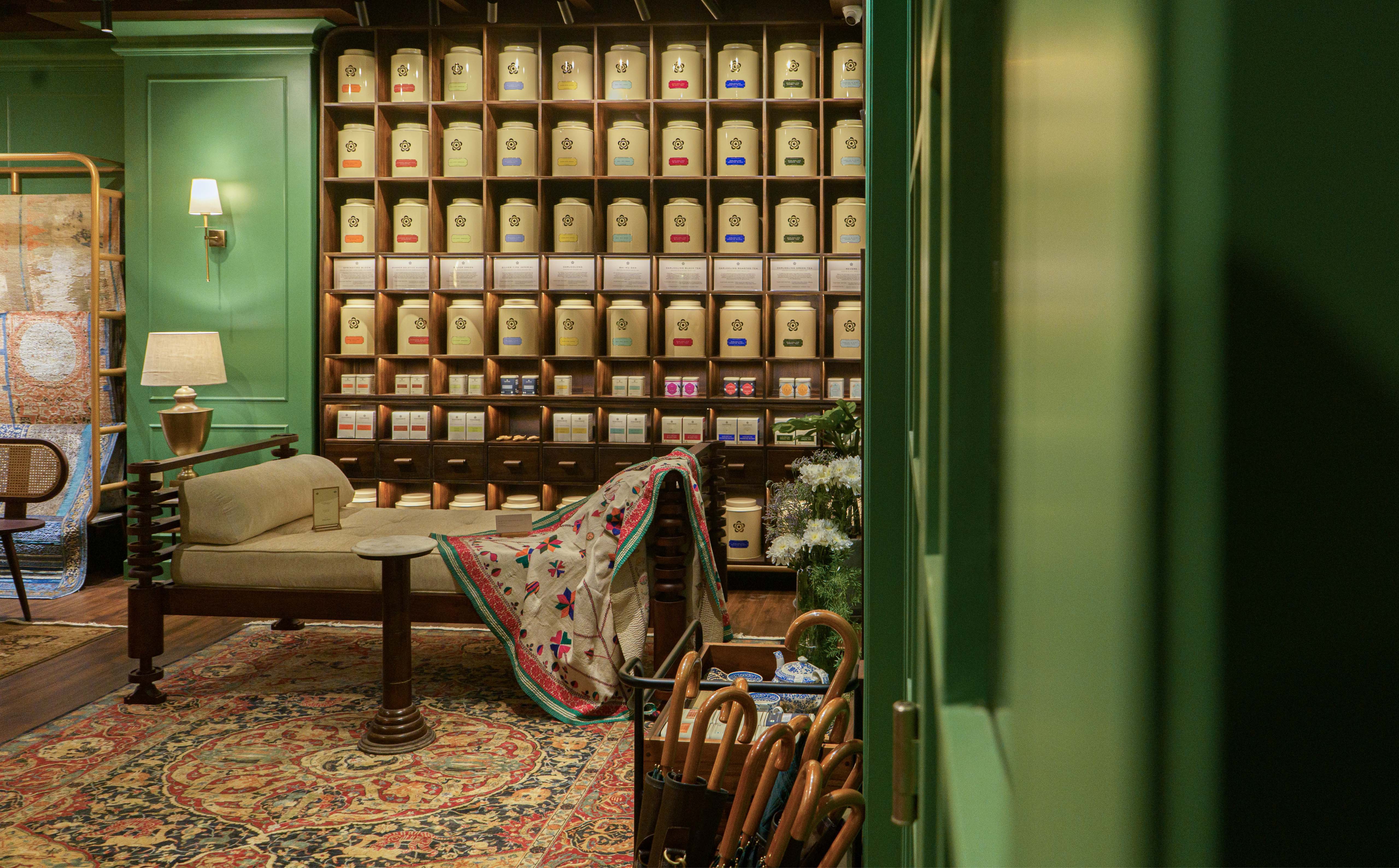
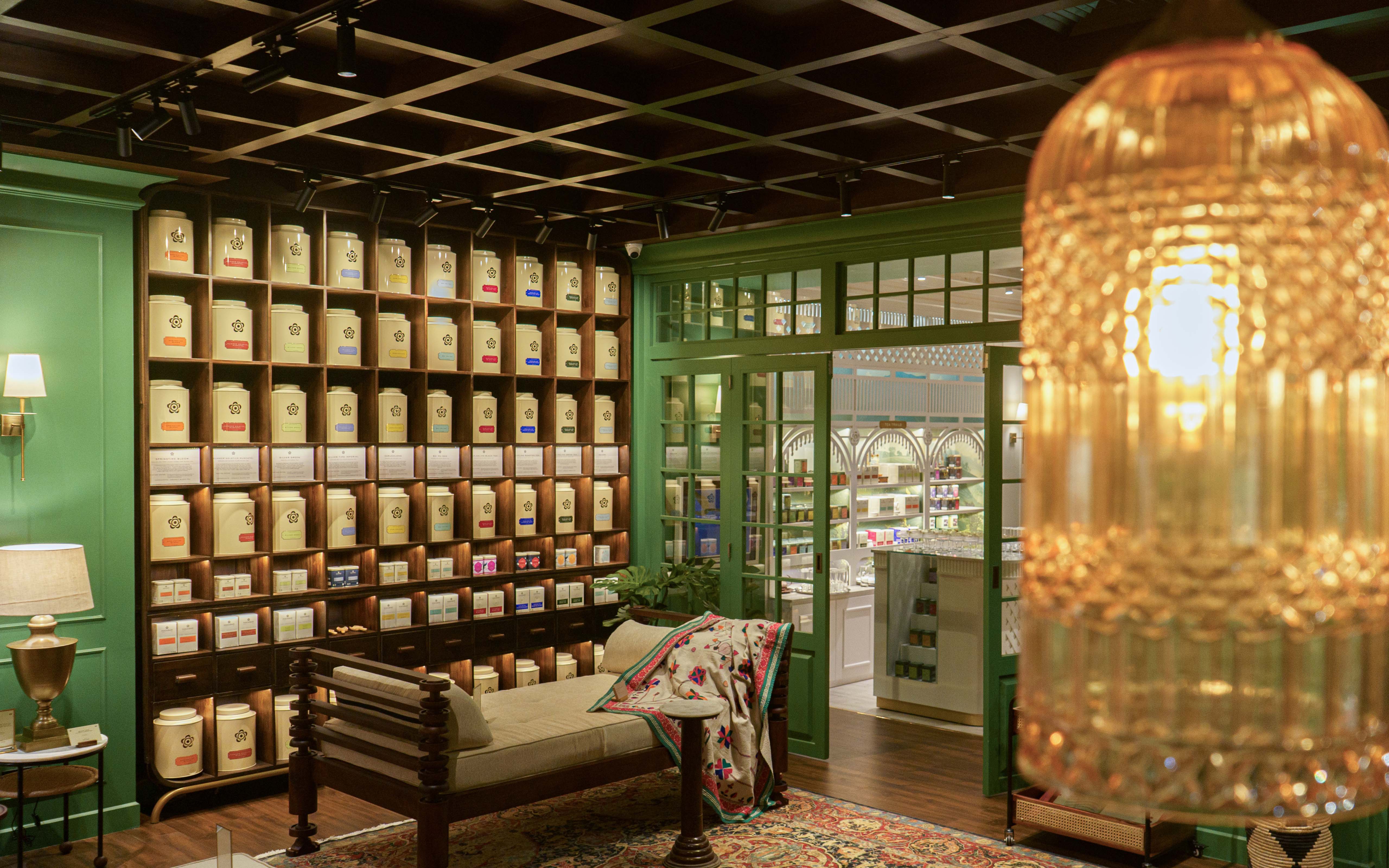
At the entrance and exit, the prayer wheels—an interactive installation—pays homage to the Buddhist practice, introducing the monastic energy of the estates.
At Luxmi, tea is revered as a sacred herb. The wheels are made of large green canisters with loose-leaf tea from Luxmi’s 26 estates.
"Touching the base of the cans and spinning each wheel, we embark on a journey of the heart, guided by the hand, enclosed in the hum of friction. The sacredness of this ritual lies in the whisper of blessings, in the movement of the palm, in the spin of the wheel, in the circle of the blend, following the sun’s path across the sky.”
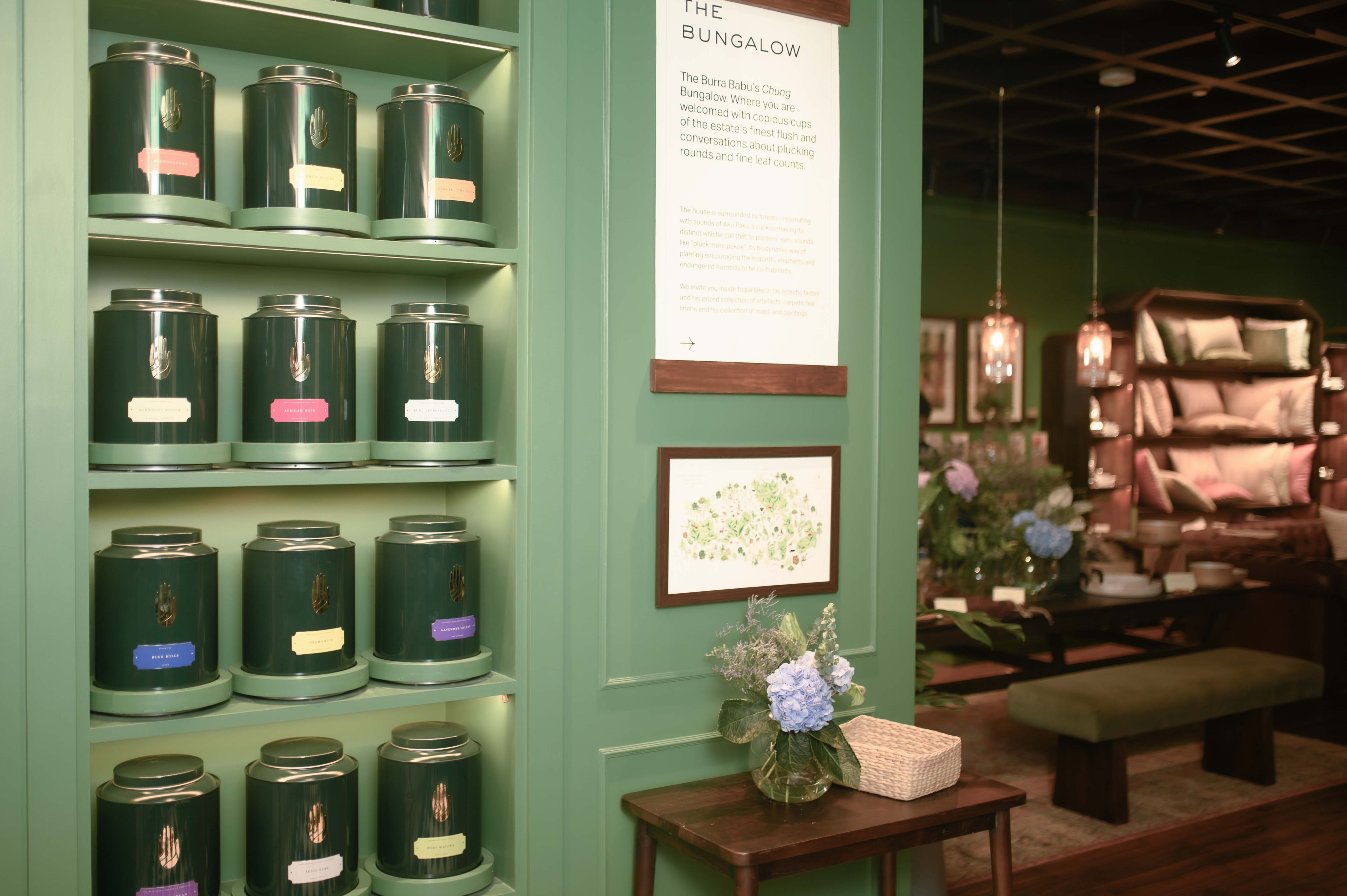
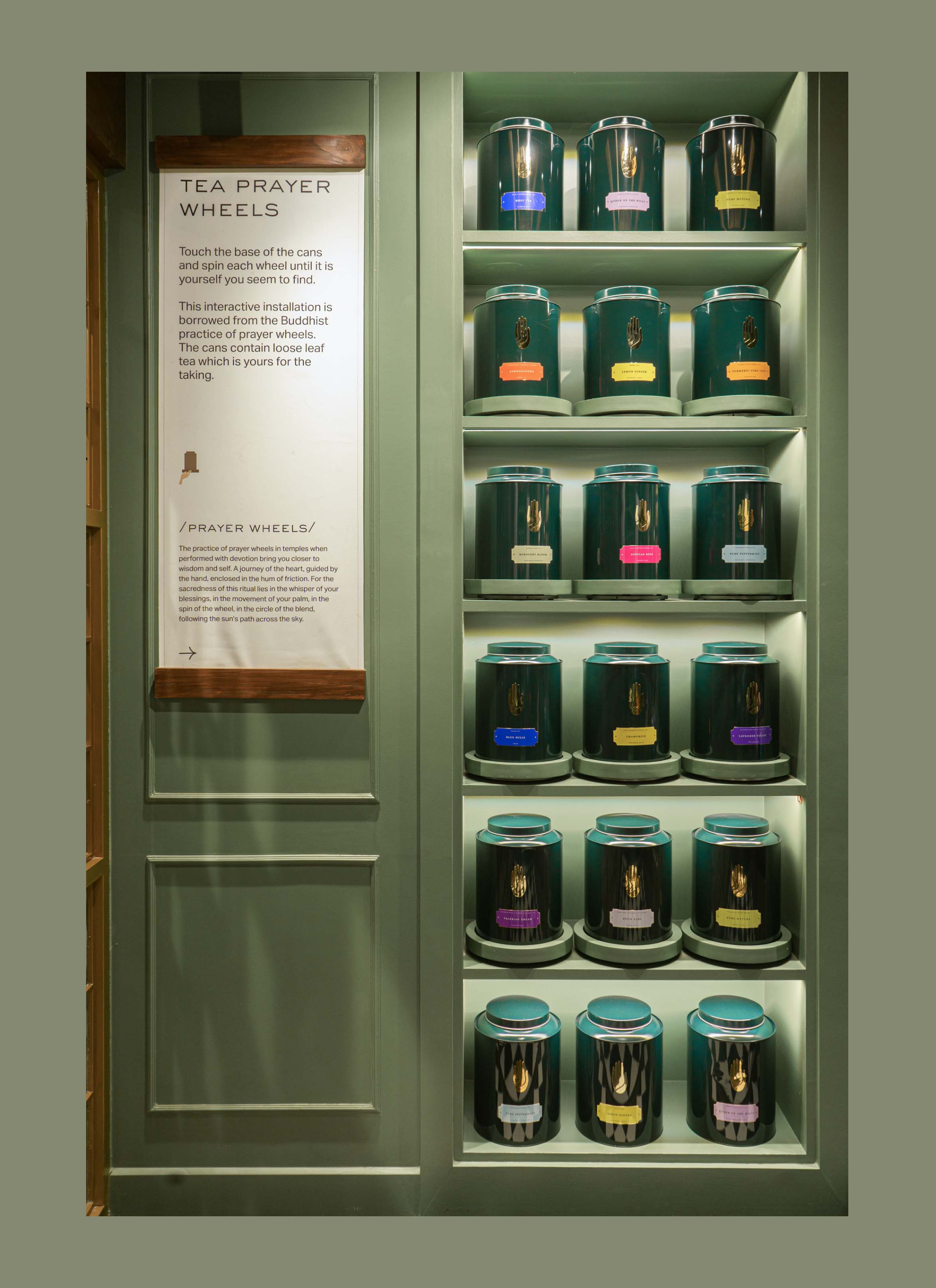
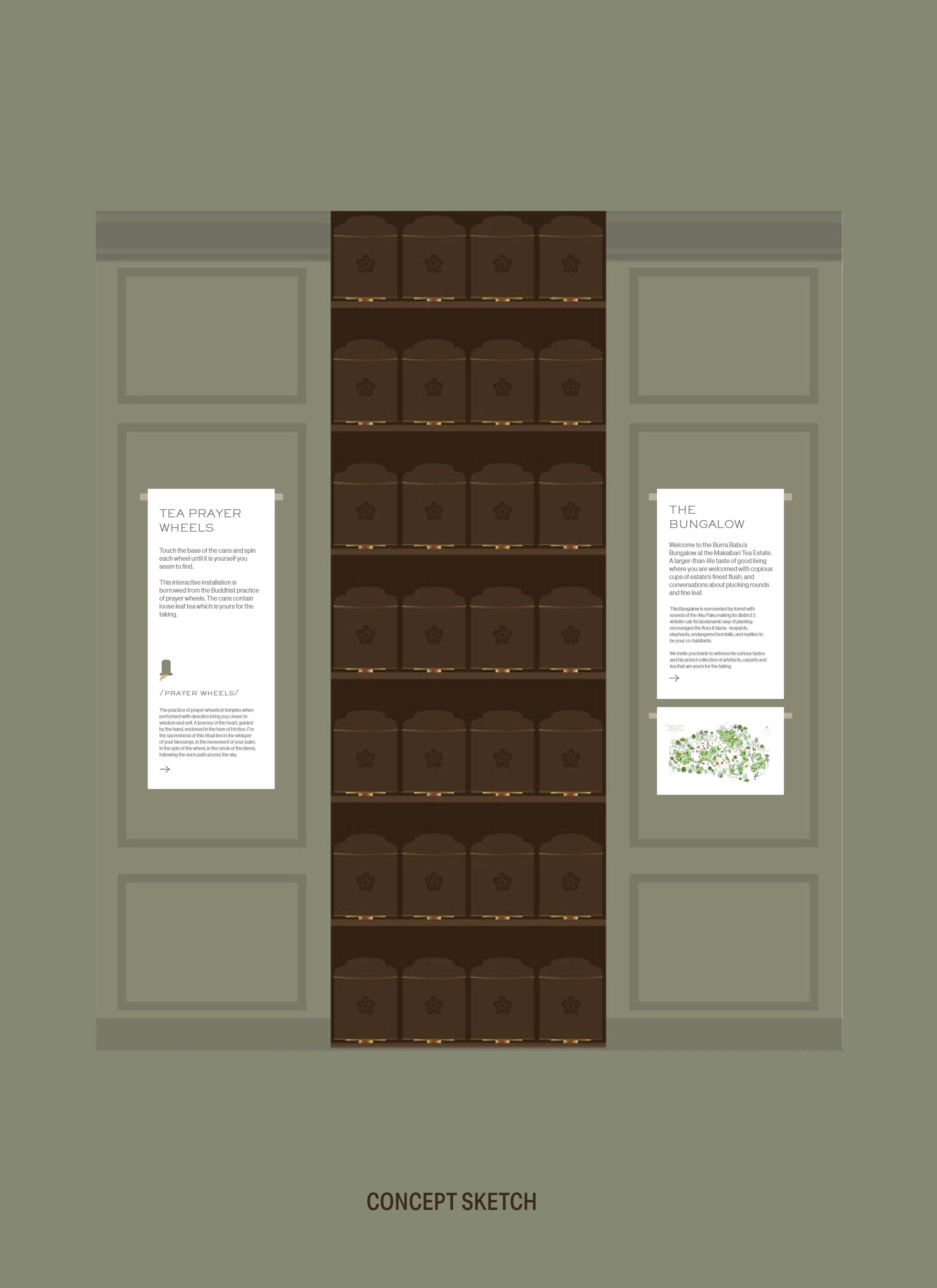
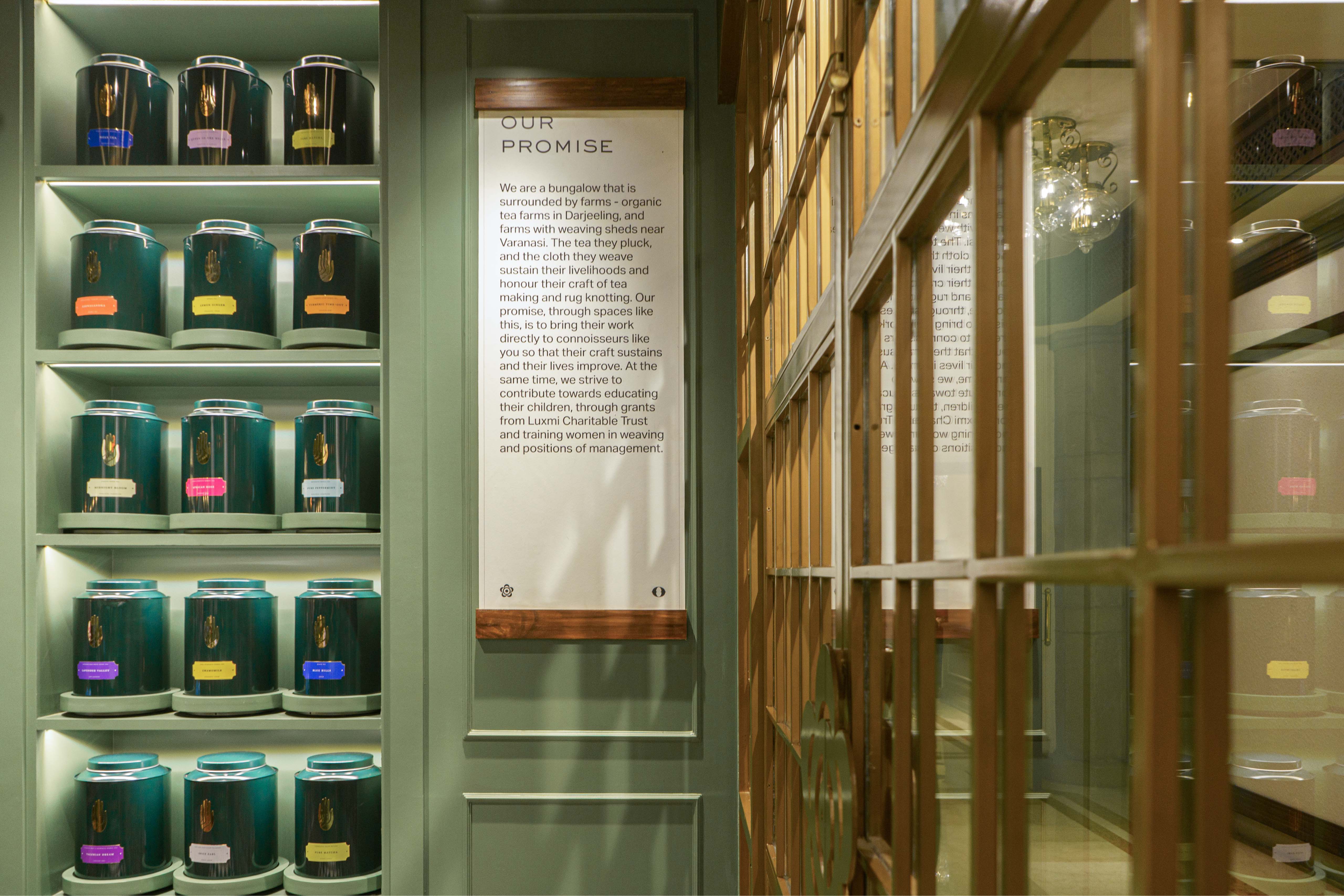
The verandah, archetypal to the Burra Bungalow, is complete with a jalli kamra. It blends the indoors with the outdoors, offering views of rolling hills with tea bushes guarded by lush vegetation. Here, one can experience the tea-tasting ritual led by a sommelier, while listening to the recordings of the melodious chirping of birds. This is both a serene setting to appreciate the nuances of fine tea and a space reminiscent of tea sessions and adda - spaces to inspire friendly discourse.
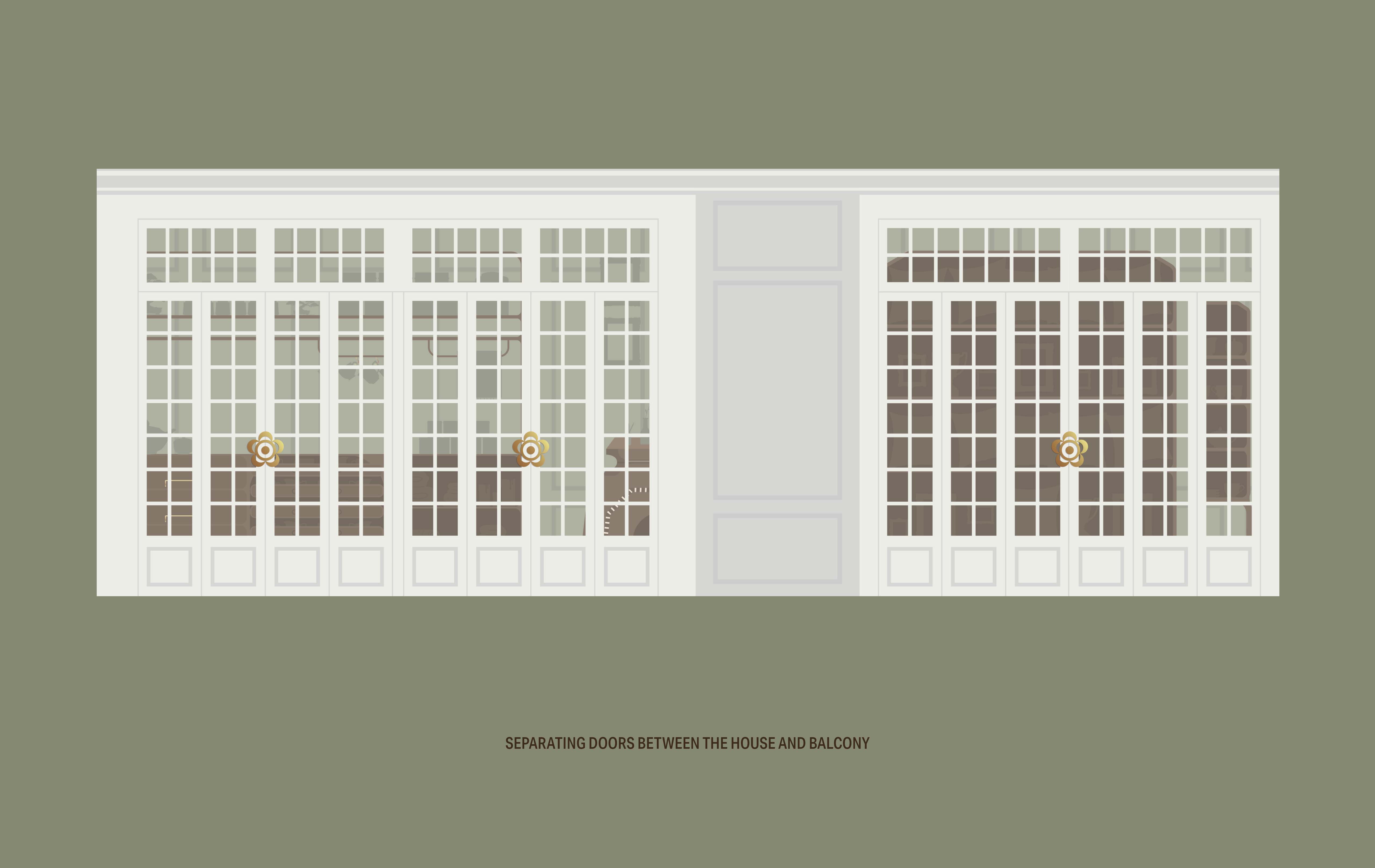
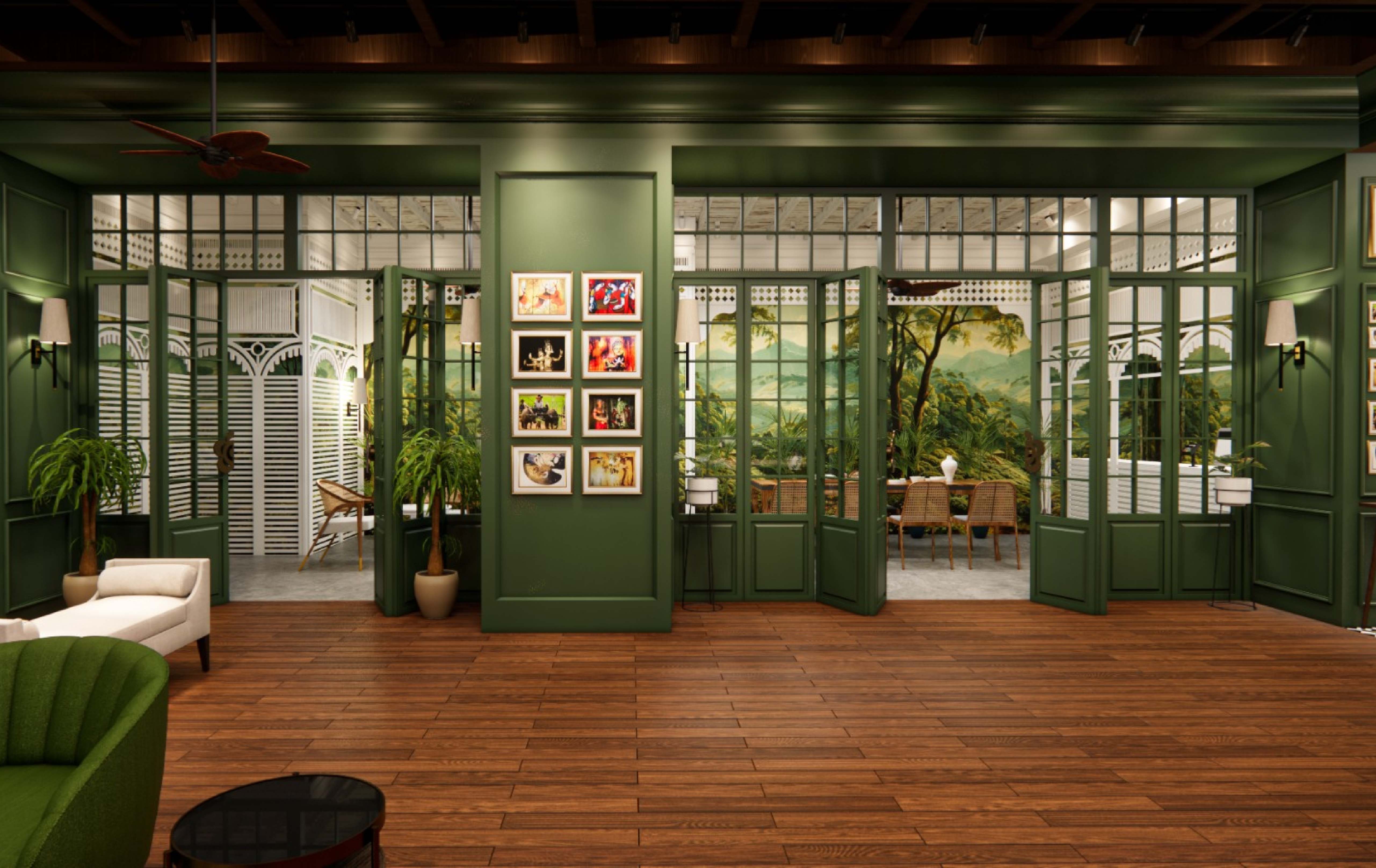
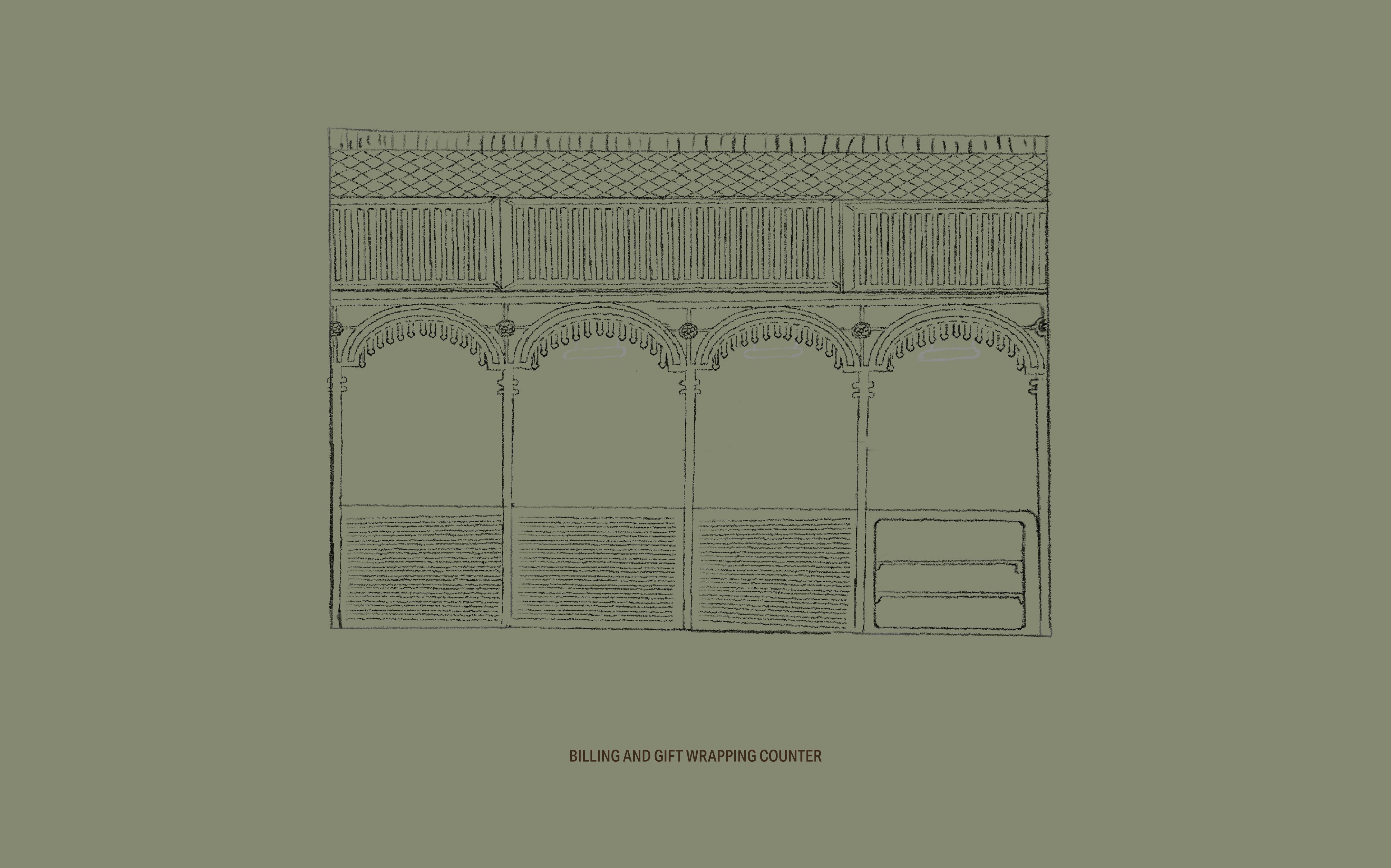
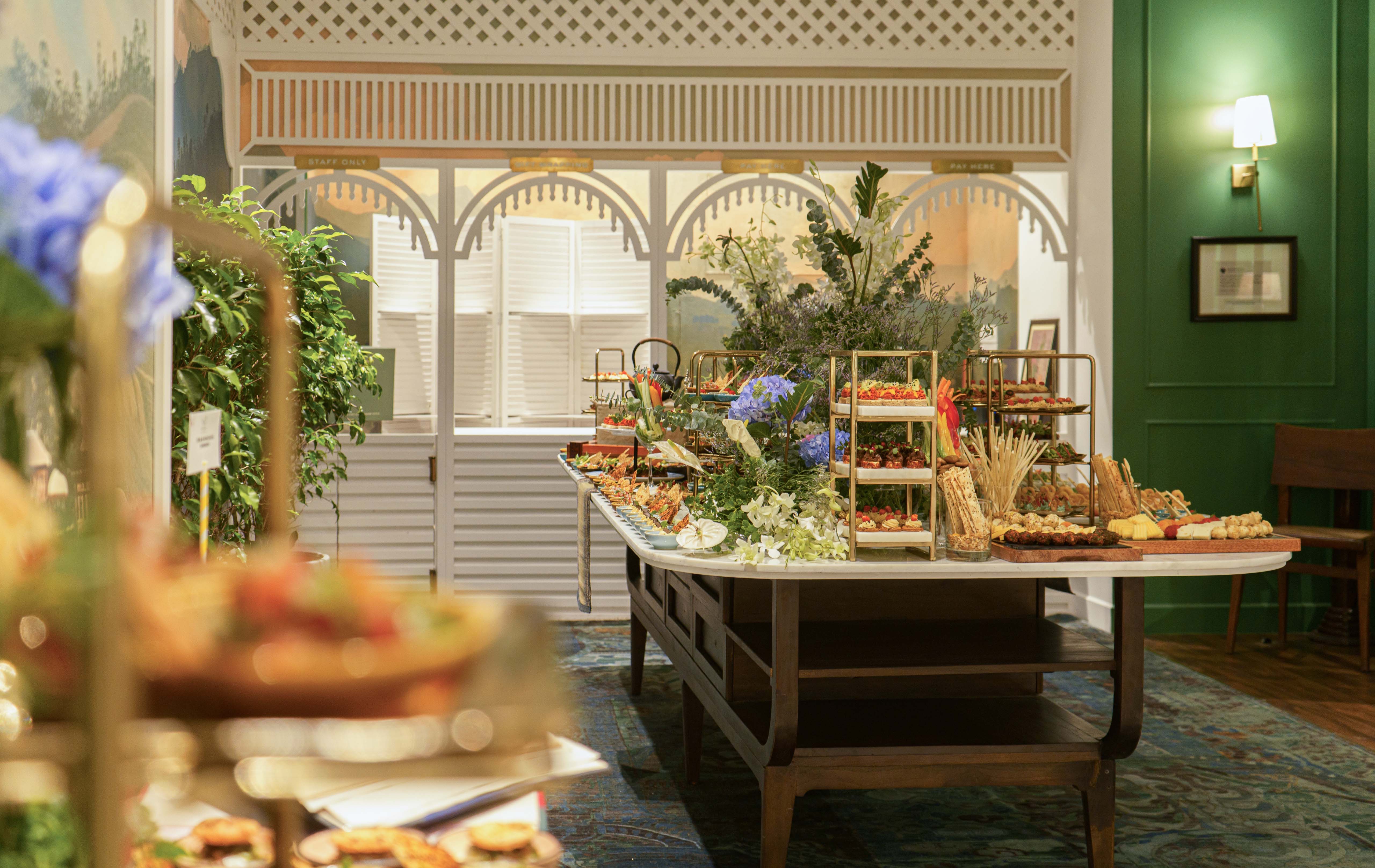
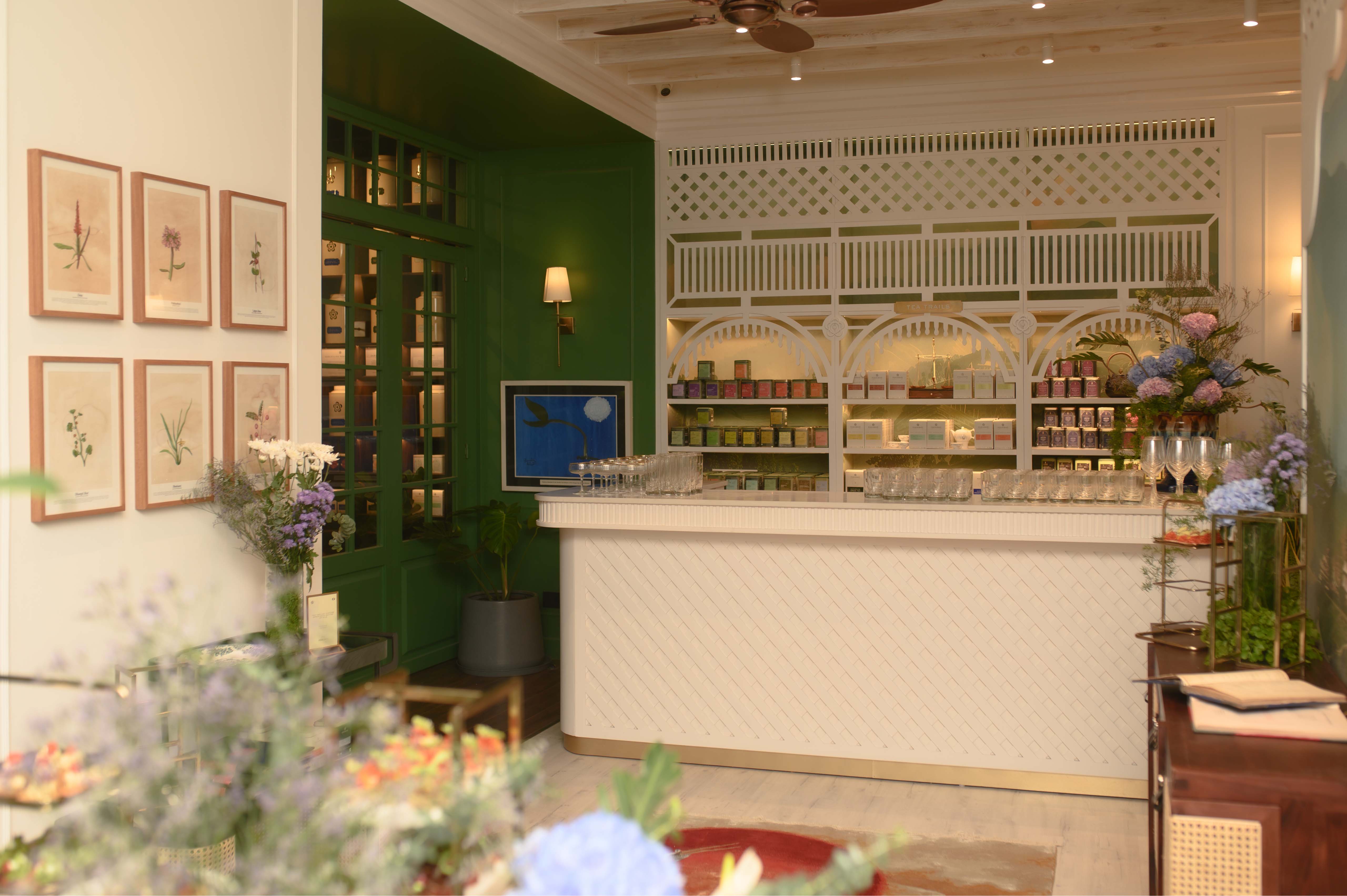
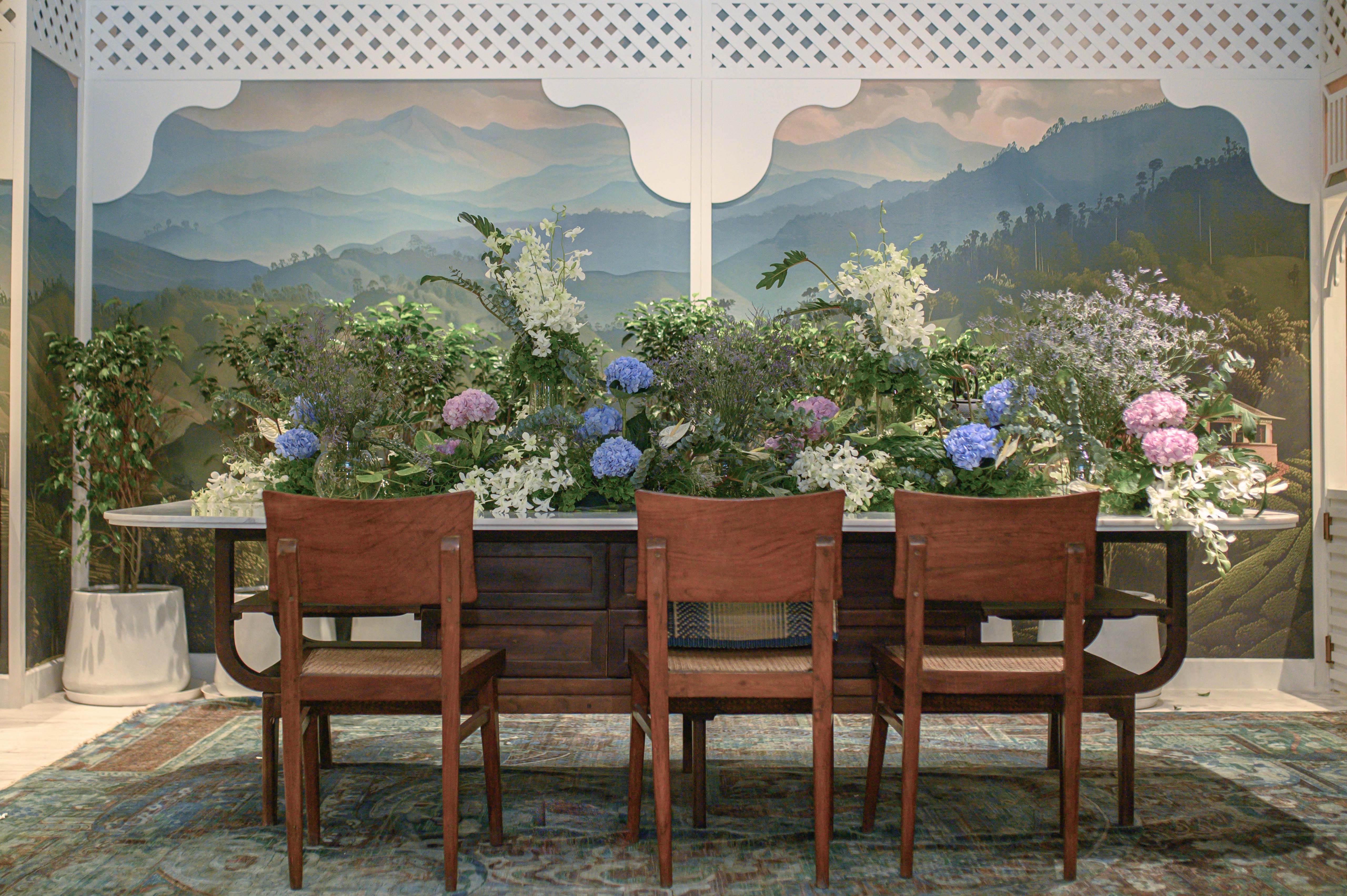
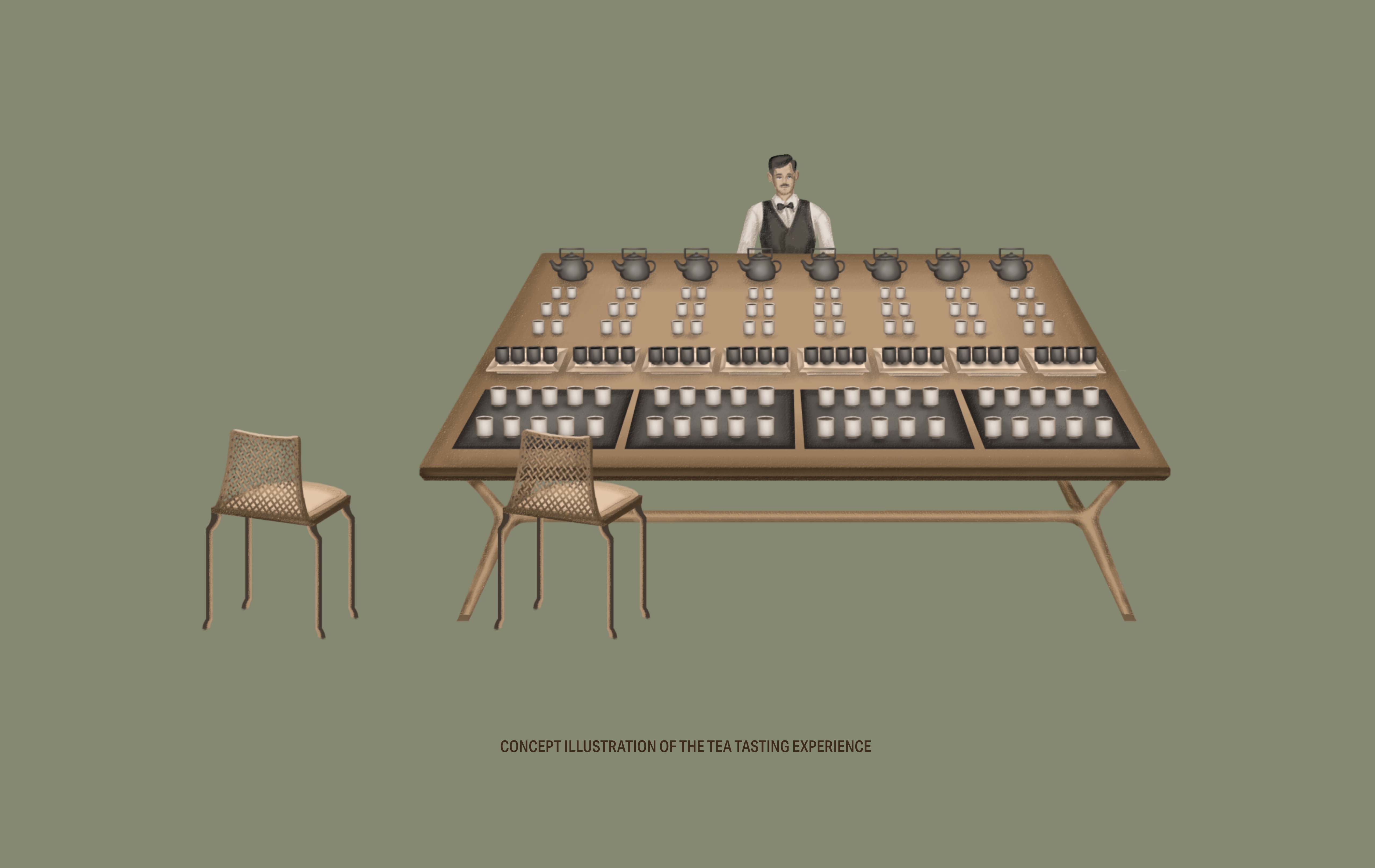
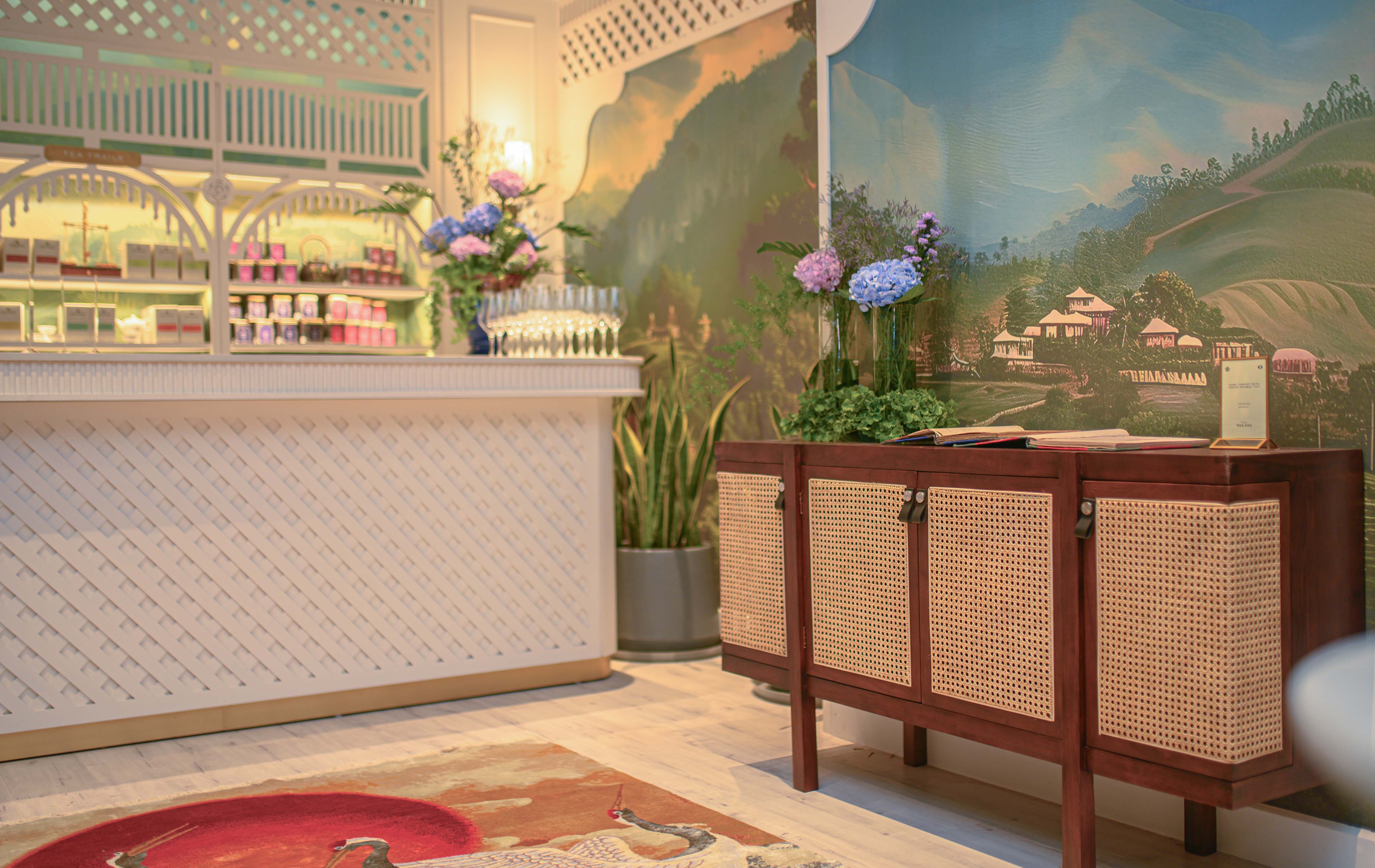
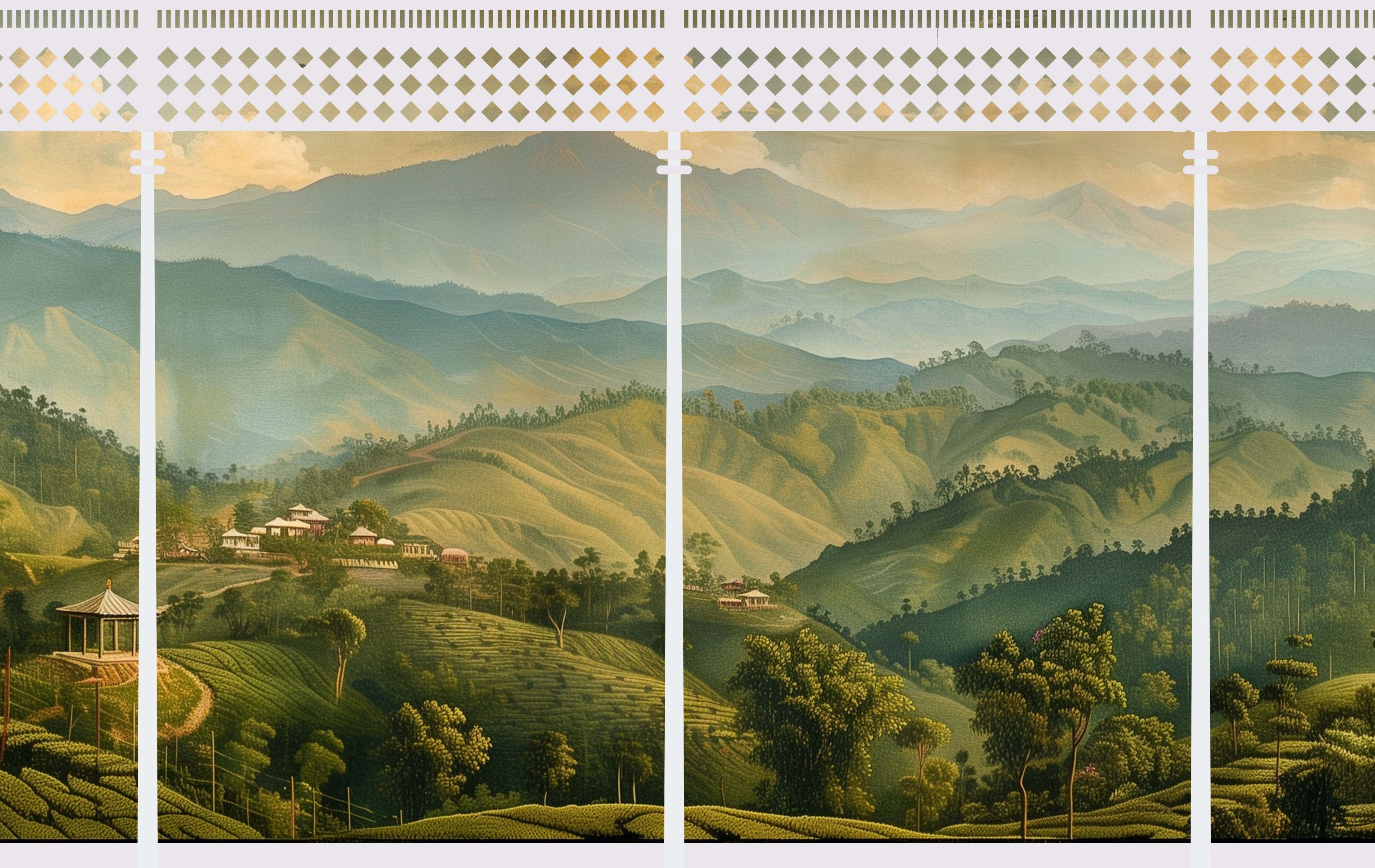
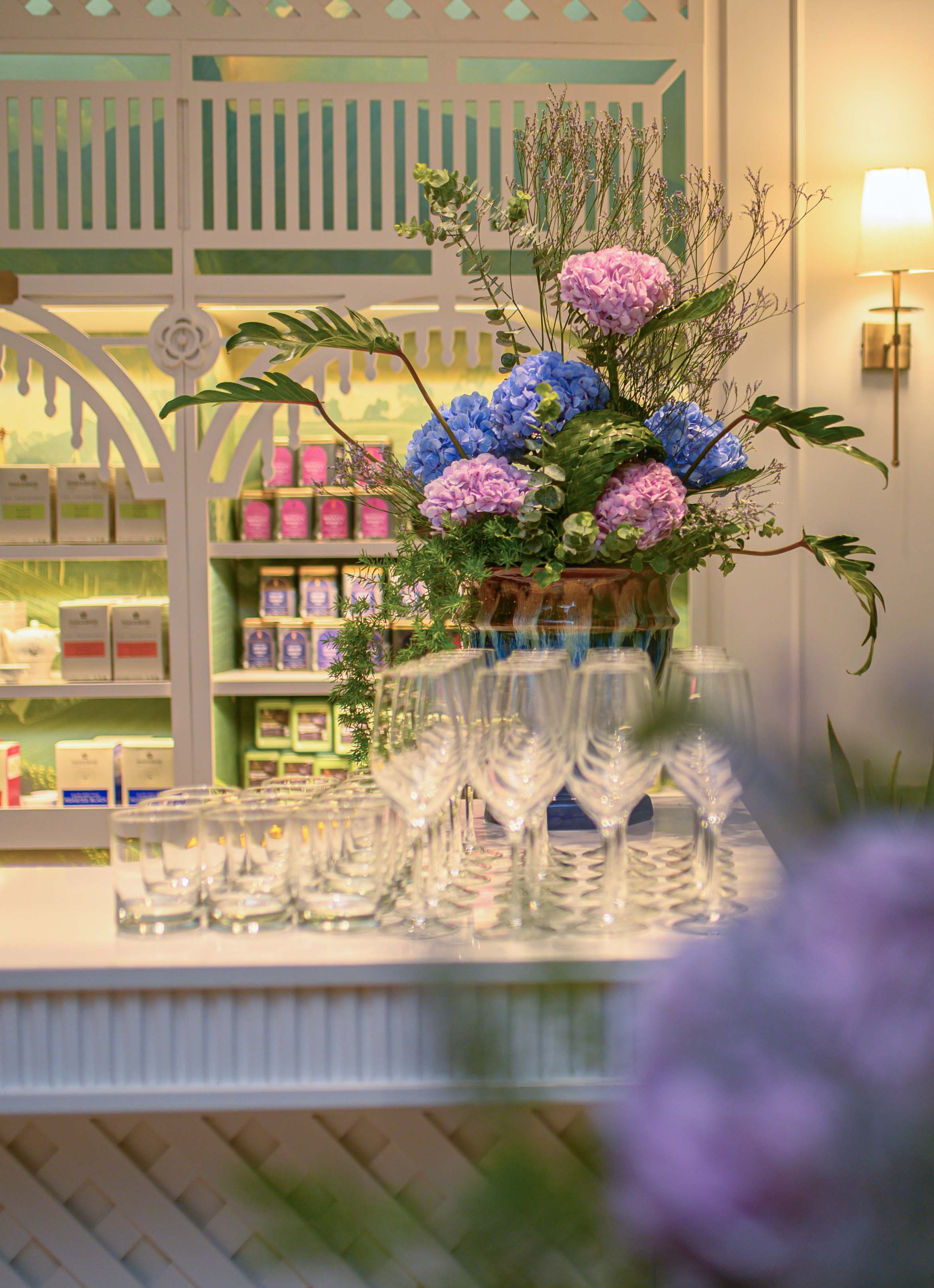
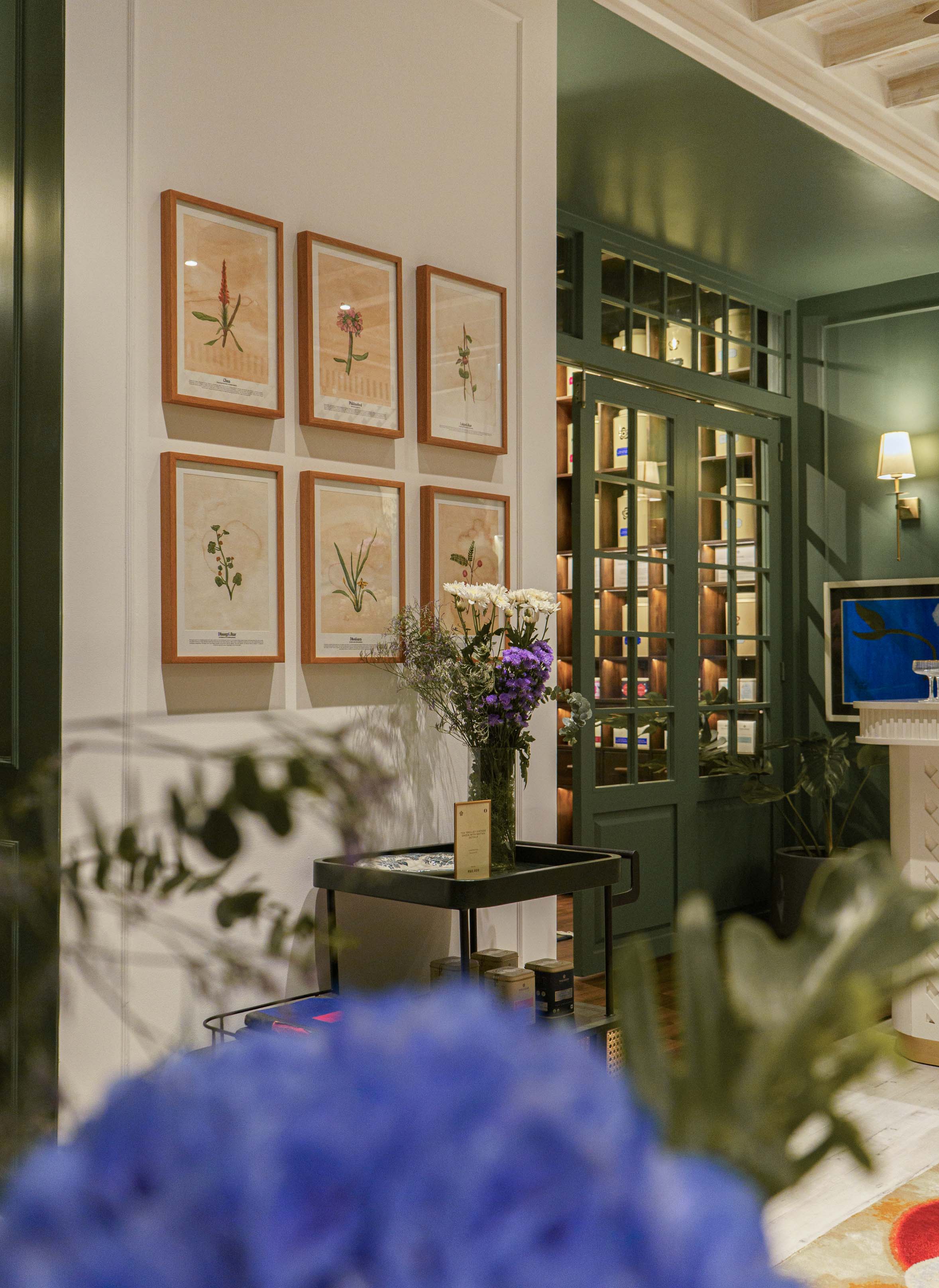
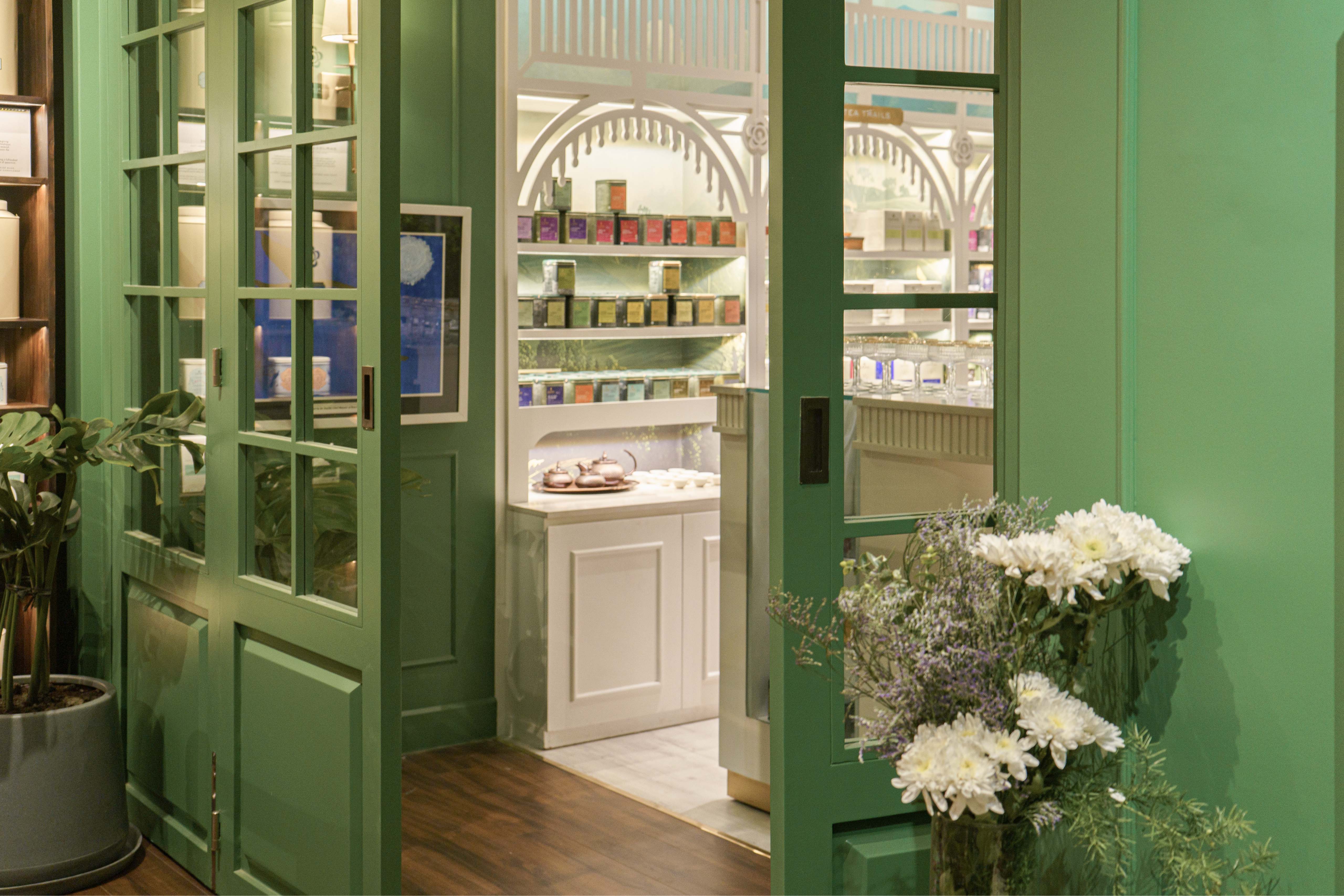
The facade of the store’s entrance (along the corridors of the hotel) was imagined as a pair of bay windows. A television that plays the role of a window, looks into the estate with scenes from the plantation playing on loop. Below the window, the shelves house a seasonal mini museum displaying tea objects borrowed from families in Kolkata. From teacups to binoculars that once belonged to people’s grandfathers, this space becomes a showcase of Calcutta’s historic connection to tea.
The Makaibari Bungalow store is an invitation to partake in the unique experience of this iconic estate, a peek into an older slower way of life, where fine things, mindfulness, friendly banter and excellent tea are cherished above all else.
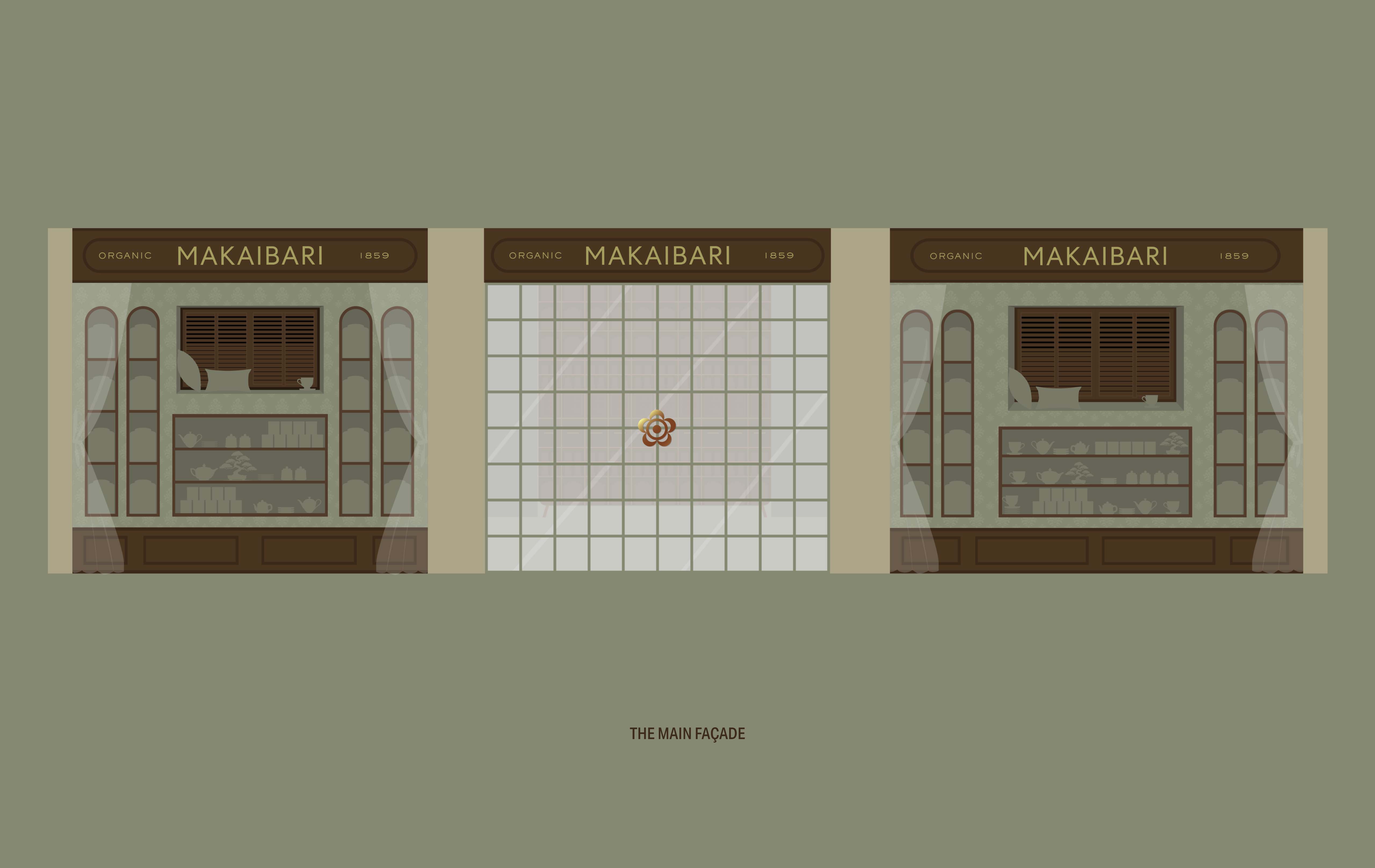
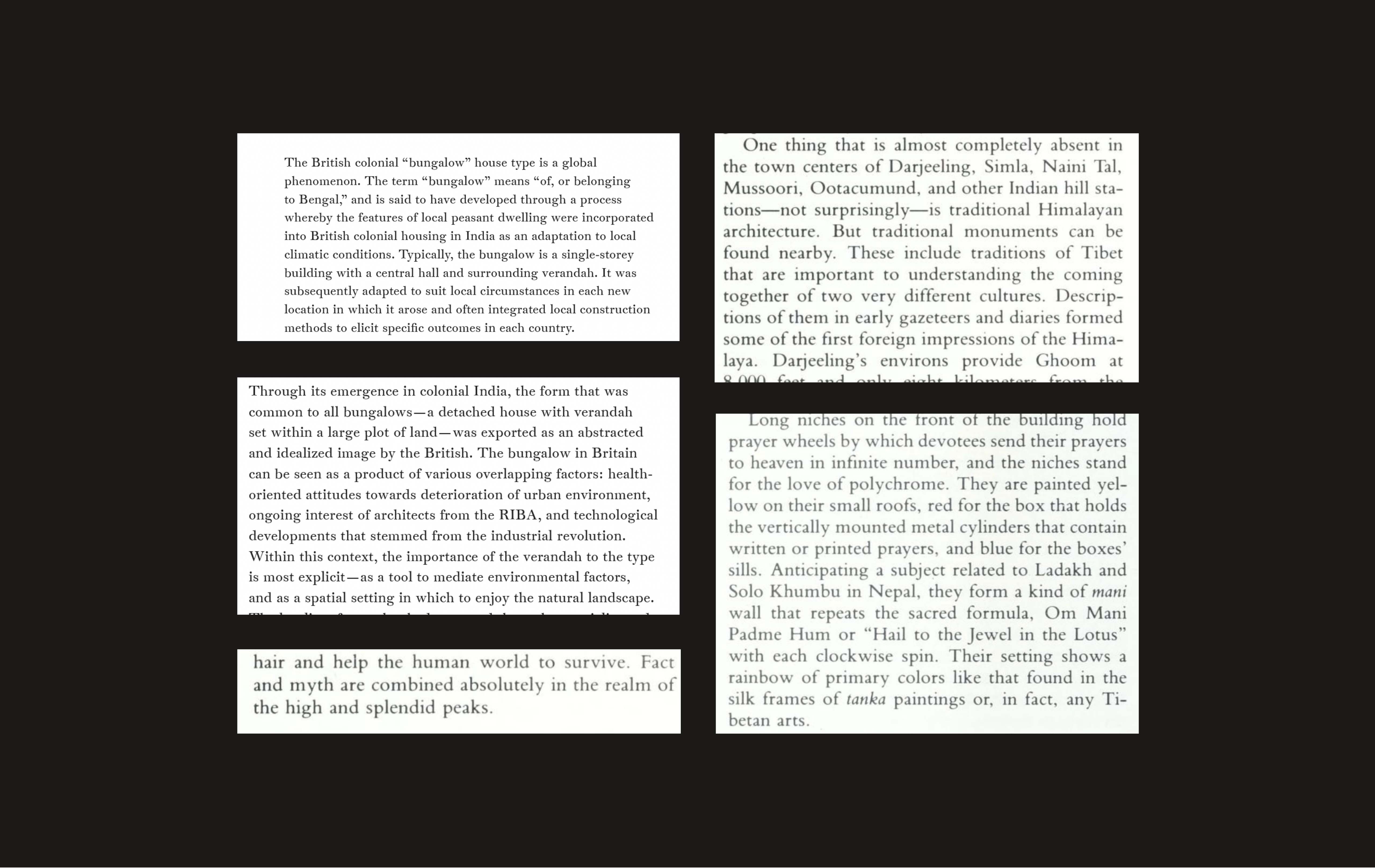
The books that were read and referenced -
The Burra Bungalows of North Bengal; Rudra’s dissertation about the Design Anthology of the Assamese Tea Estate House.
Approaches to the Bungalow Beyond Time and Distance: Notes of Comparison Between India, the United Kingdom, and Australia by Ayano Toki, Mamiko Miyahara.
The Bungalow: The Production of a Global Culture by Anthony. D. King
Himalayan Architecture by Ronald M. Bernier
Snippets from a visit to the Makaibari Tea Estate in Kurseong West Bengal, in order to understand the culture of the estate.
Credits: The store was built by : Design 21, In-store VM done by the internal Obeetee team along with Koi.
Next Project
